UCLA Pro-Palestinian Encampment Raided after Dispersal Order
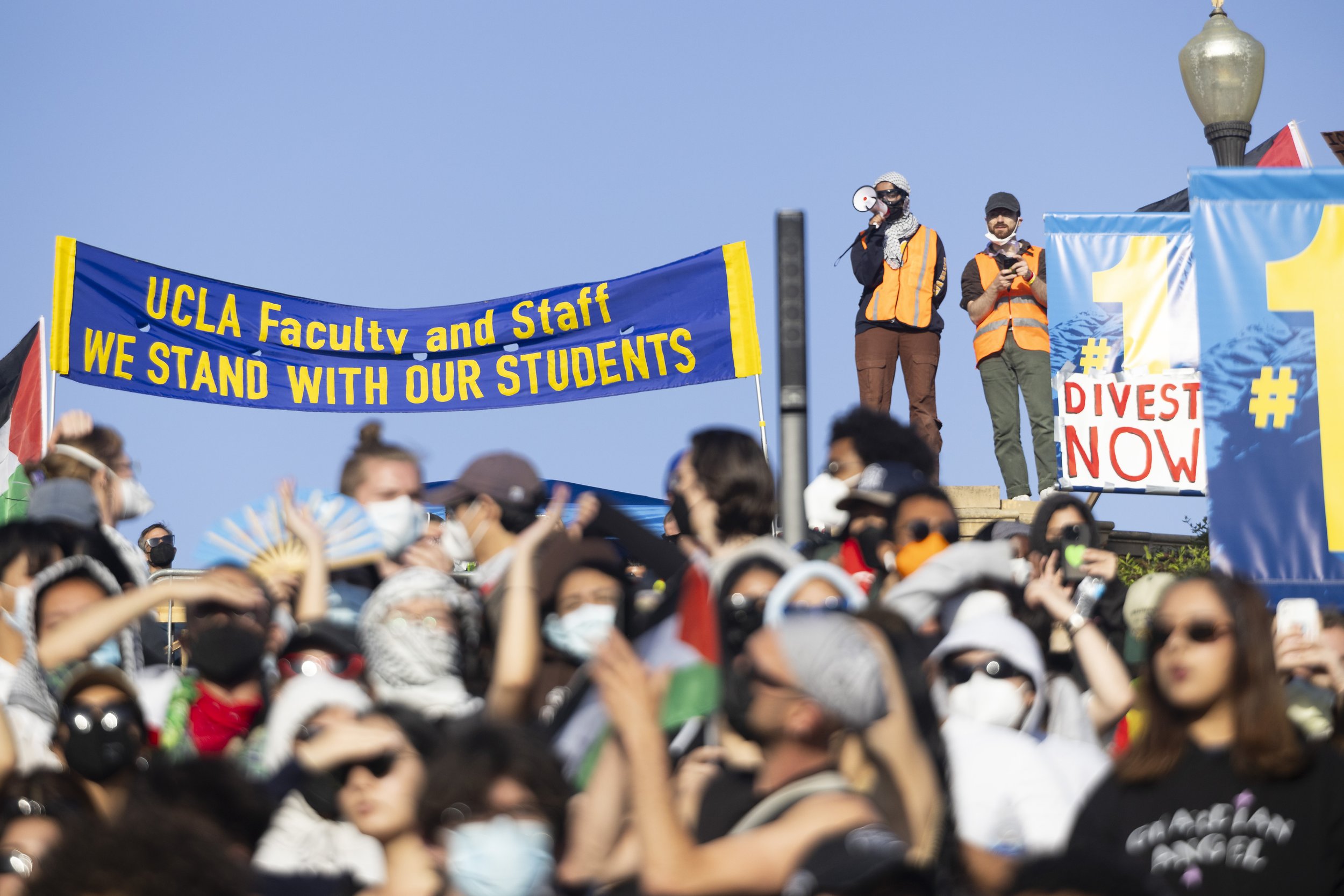
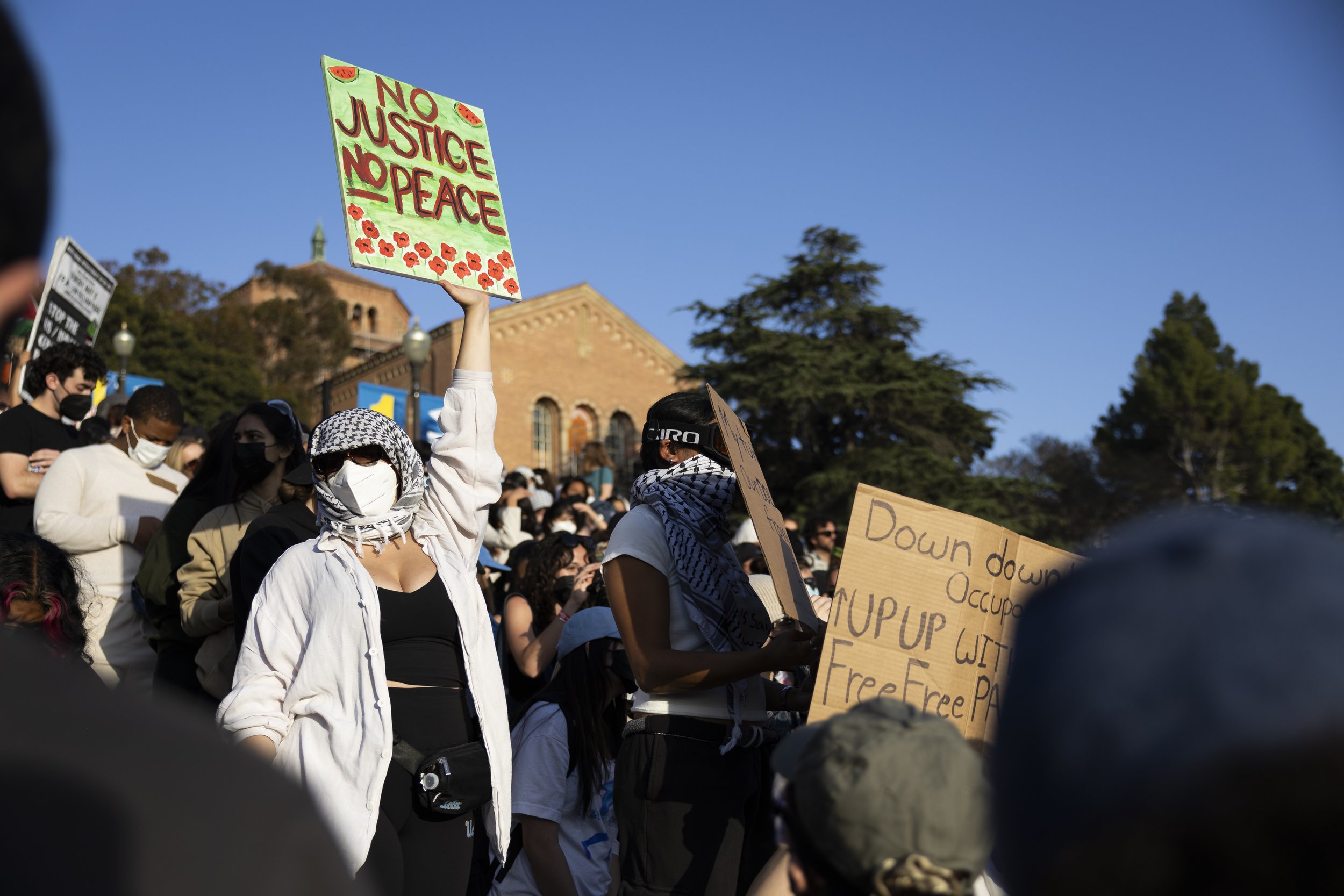
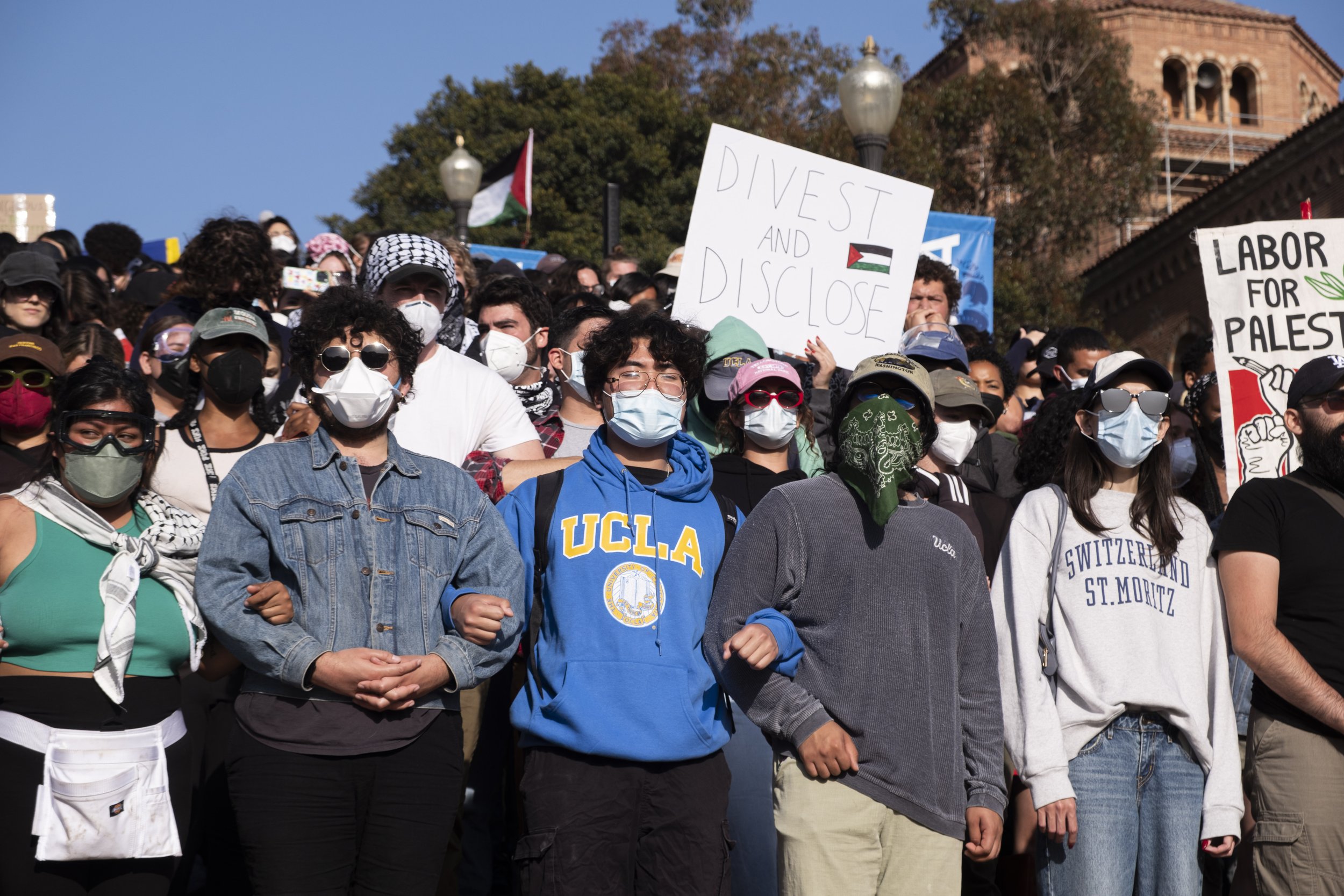
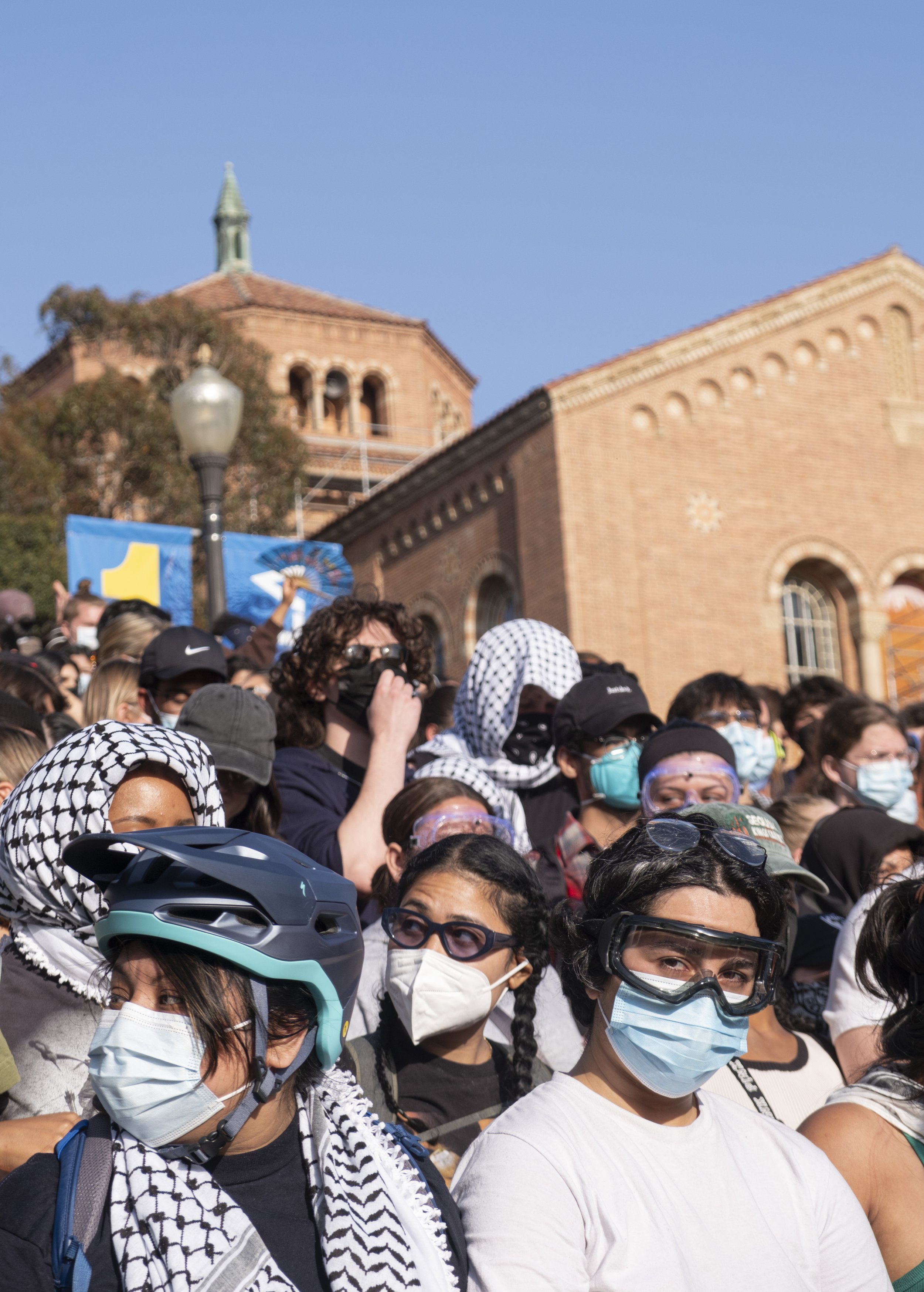
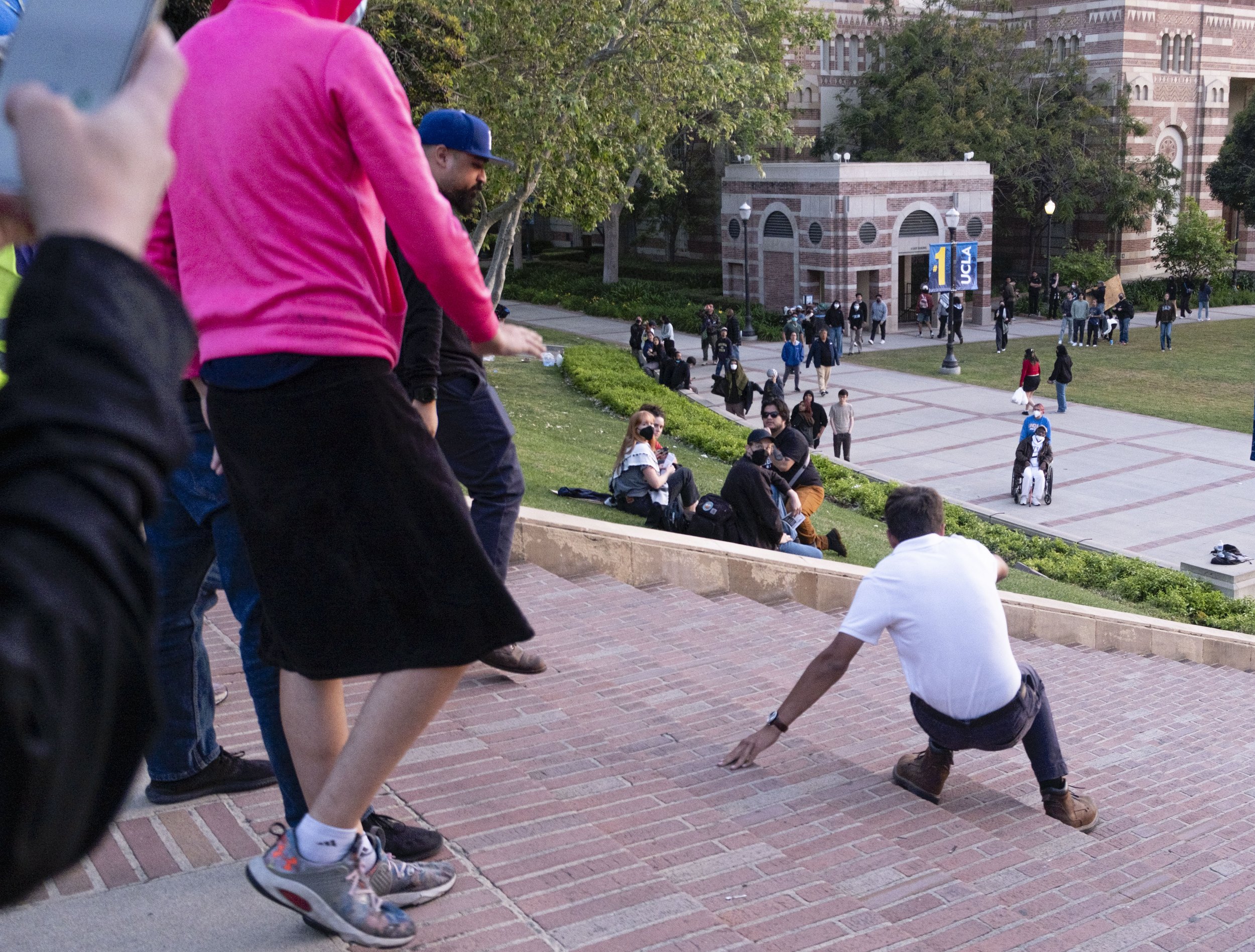
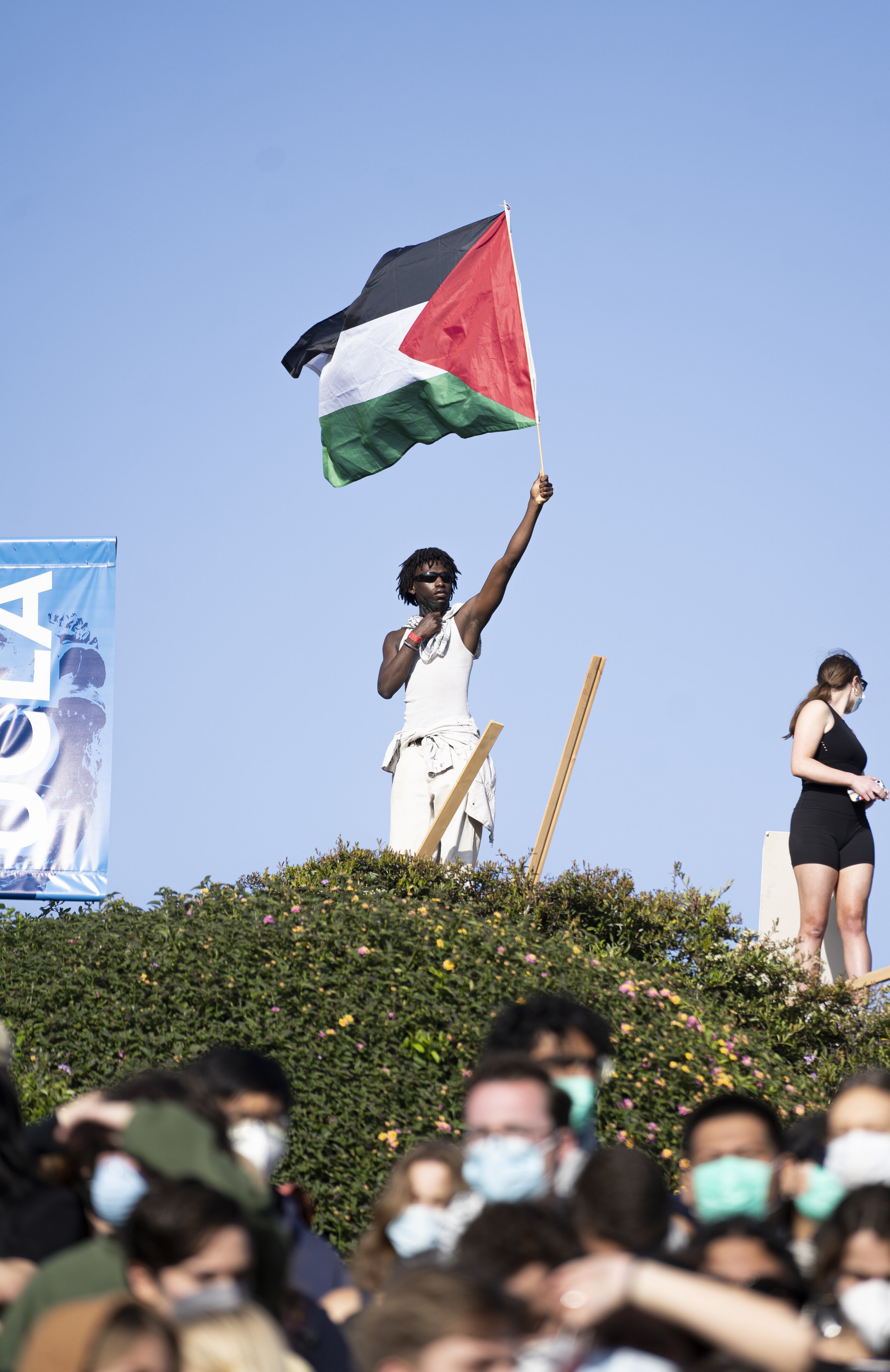
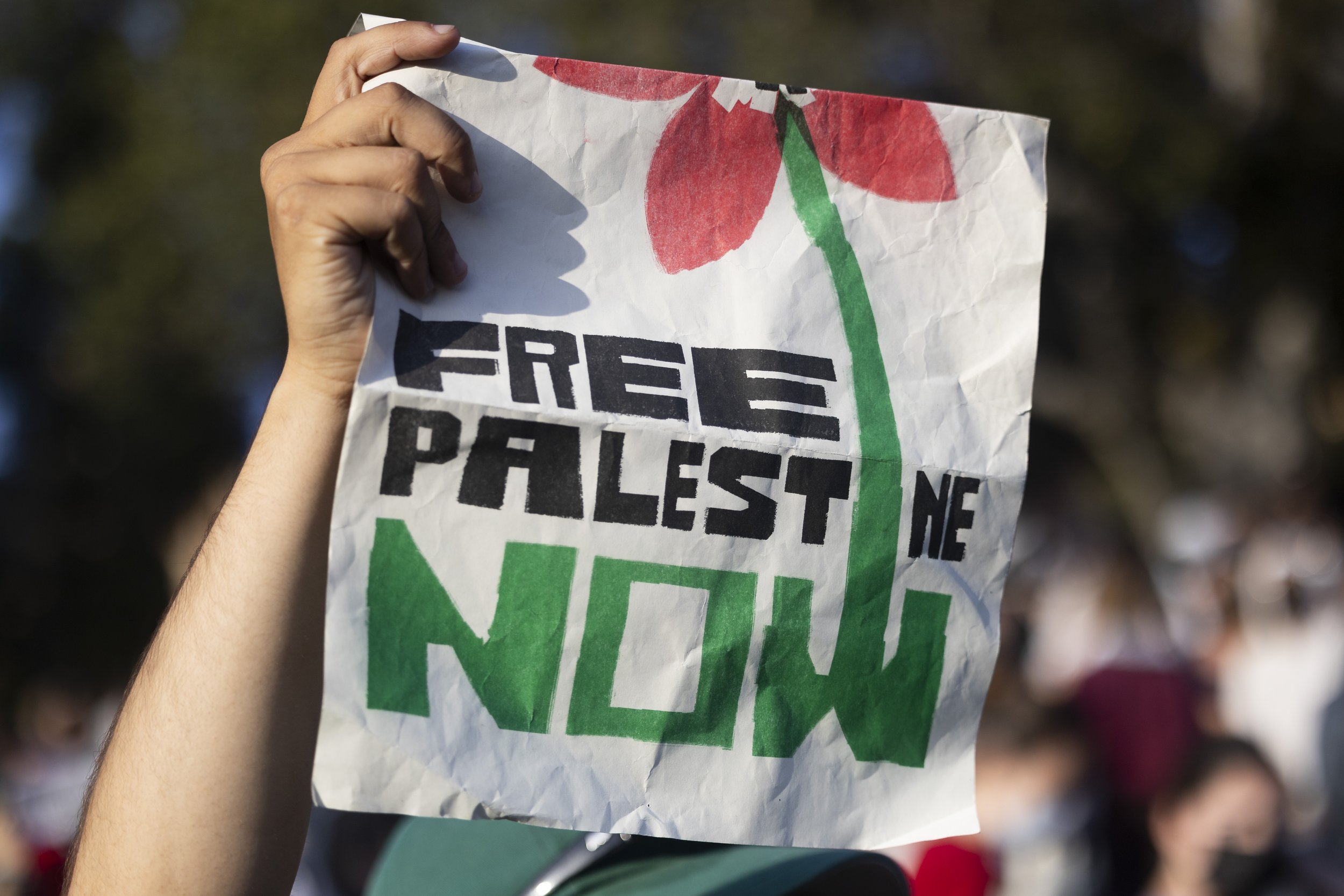
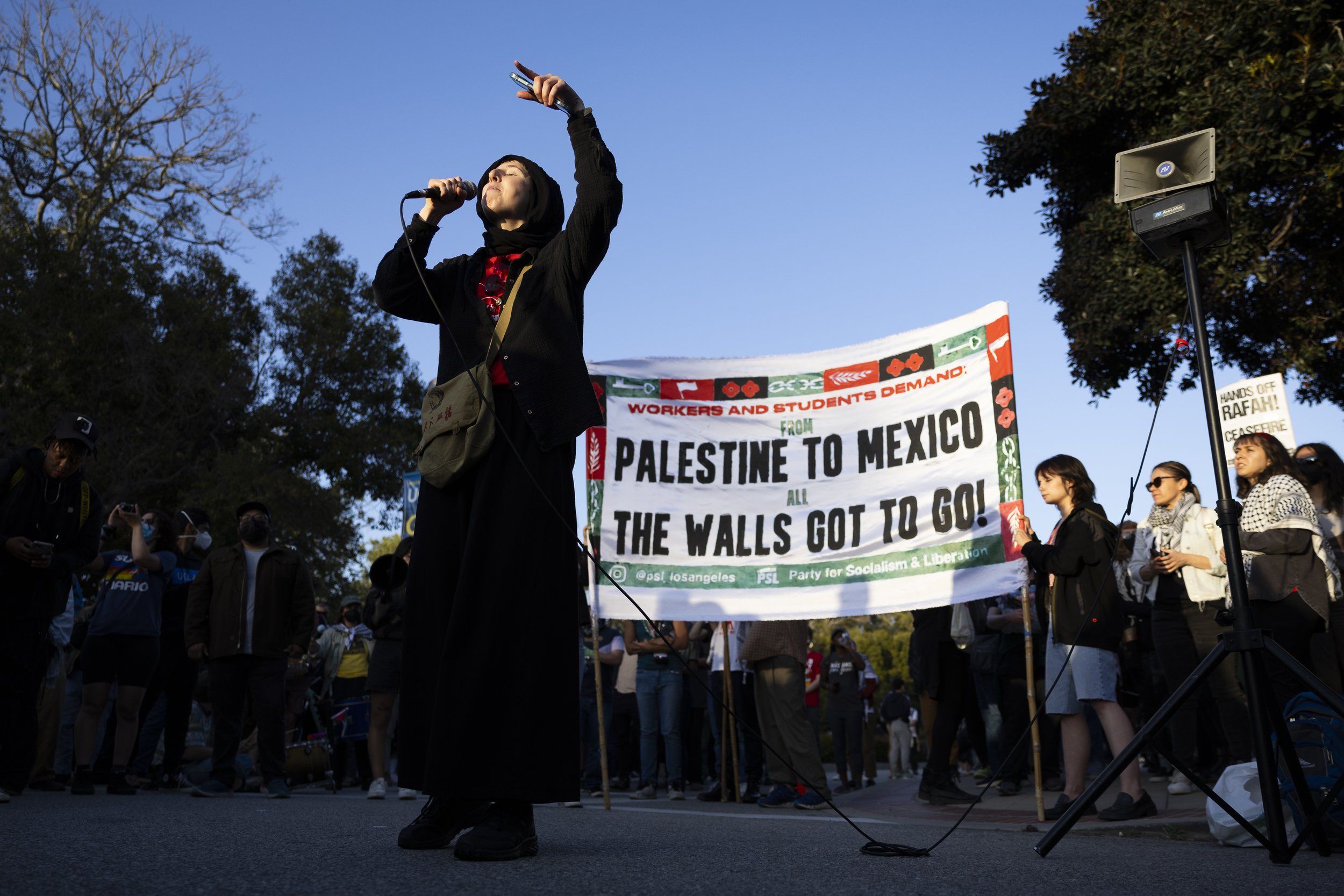
While the chants may have grown softer throughout the night, the line remained strong as hundreds of University of California, Los Angeles (UCLA) pro-Palestine protesters protected the encampment they had been peacefully protesting in for six days. After a back and forth throughout the night, officers, including California Highway Patrol, successfully shut down the encampment, arresting over 130 students early Thursday morning.
Tuesday
These arrests come after nearly 300 were arrested at pro-Palestinian encampments on college campuses in New York, including Columbia University and City College on Tuesday night.
Following the confrontation from counter-protesters on the encampment Tuesday night, leading into Wednesday morning, by a mob of people wearing all black with white masks, UCLA declared the student encampment at the heart of campus “unlawful.”
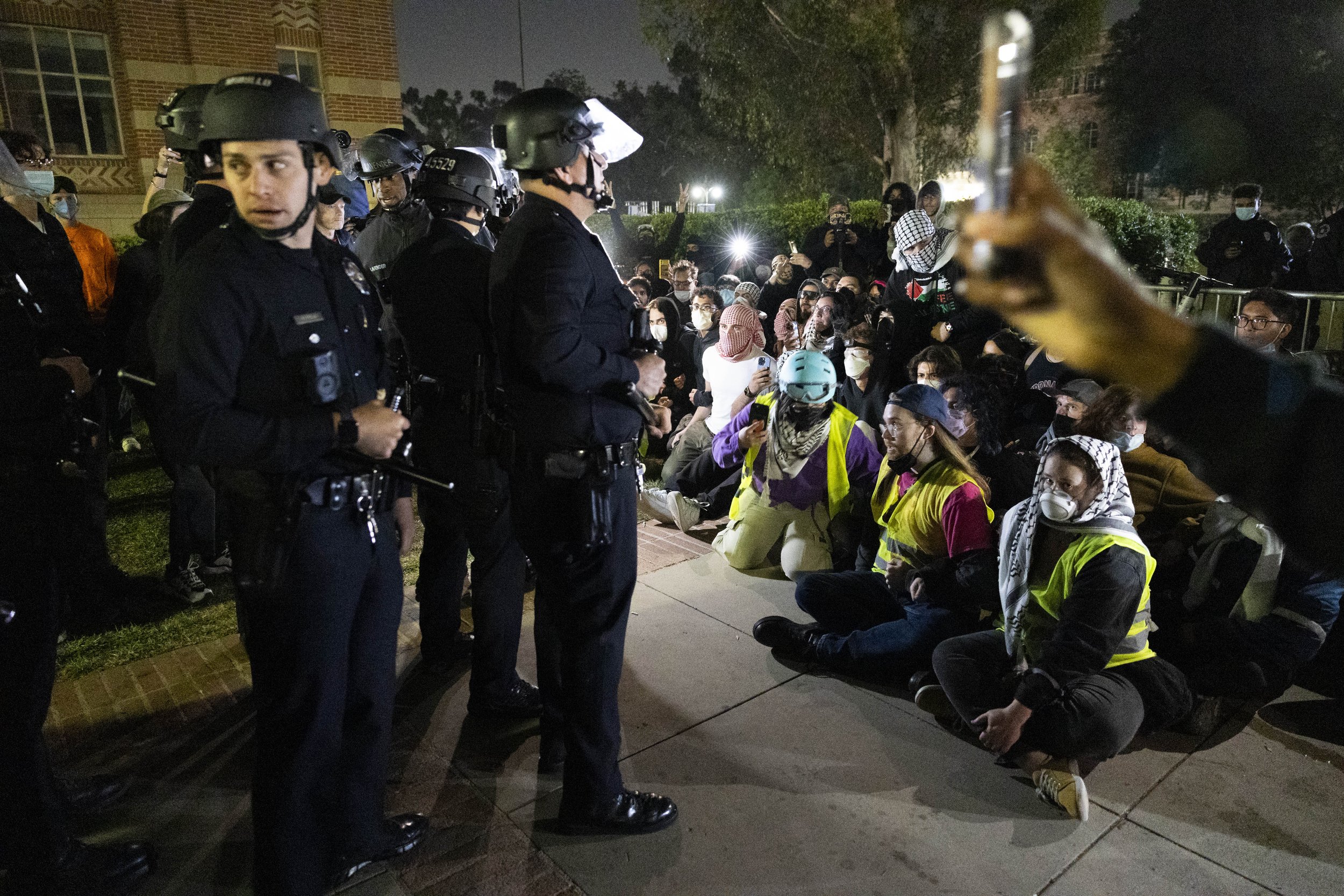
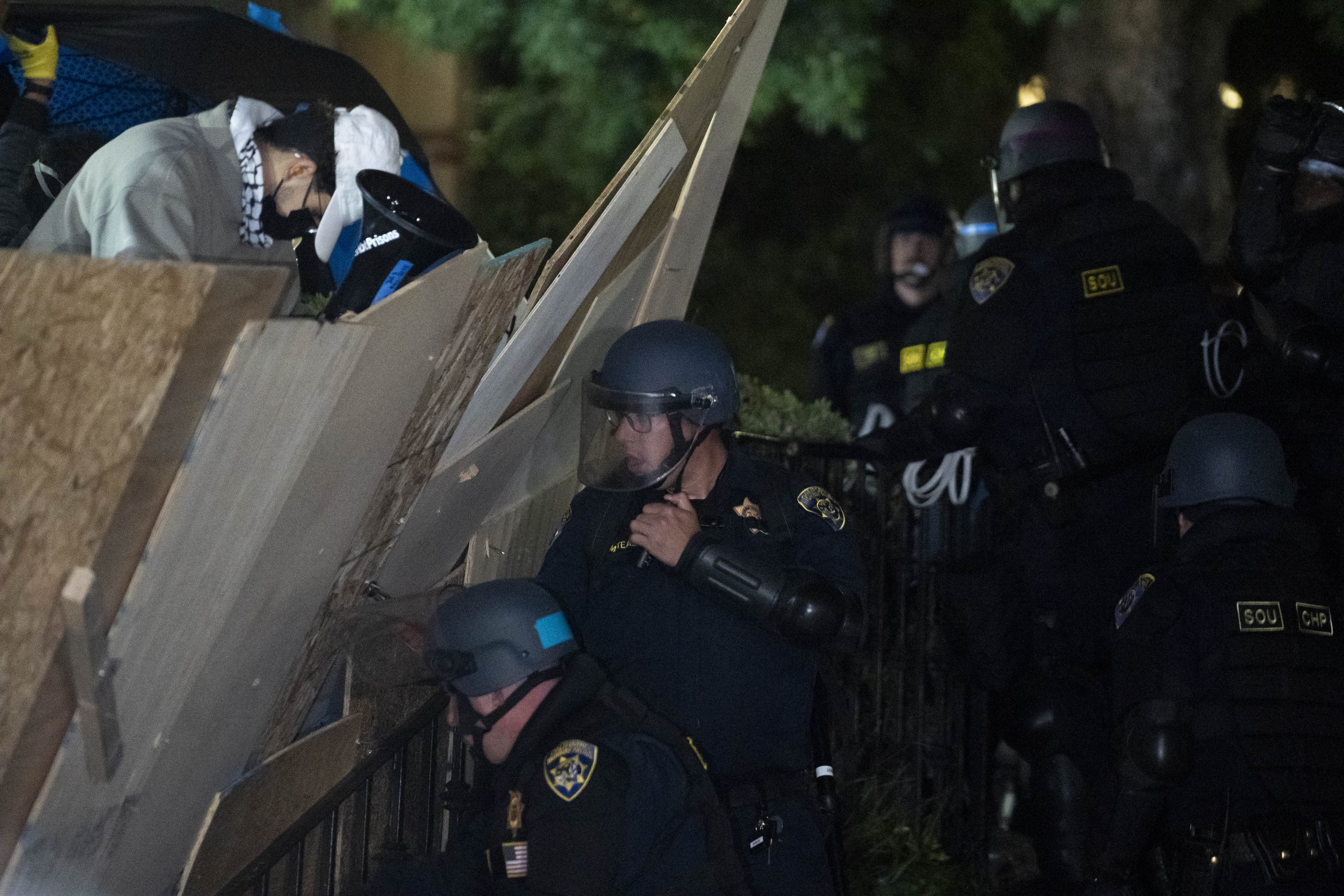
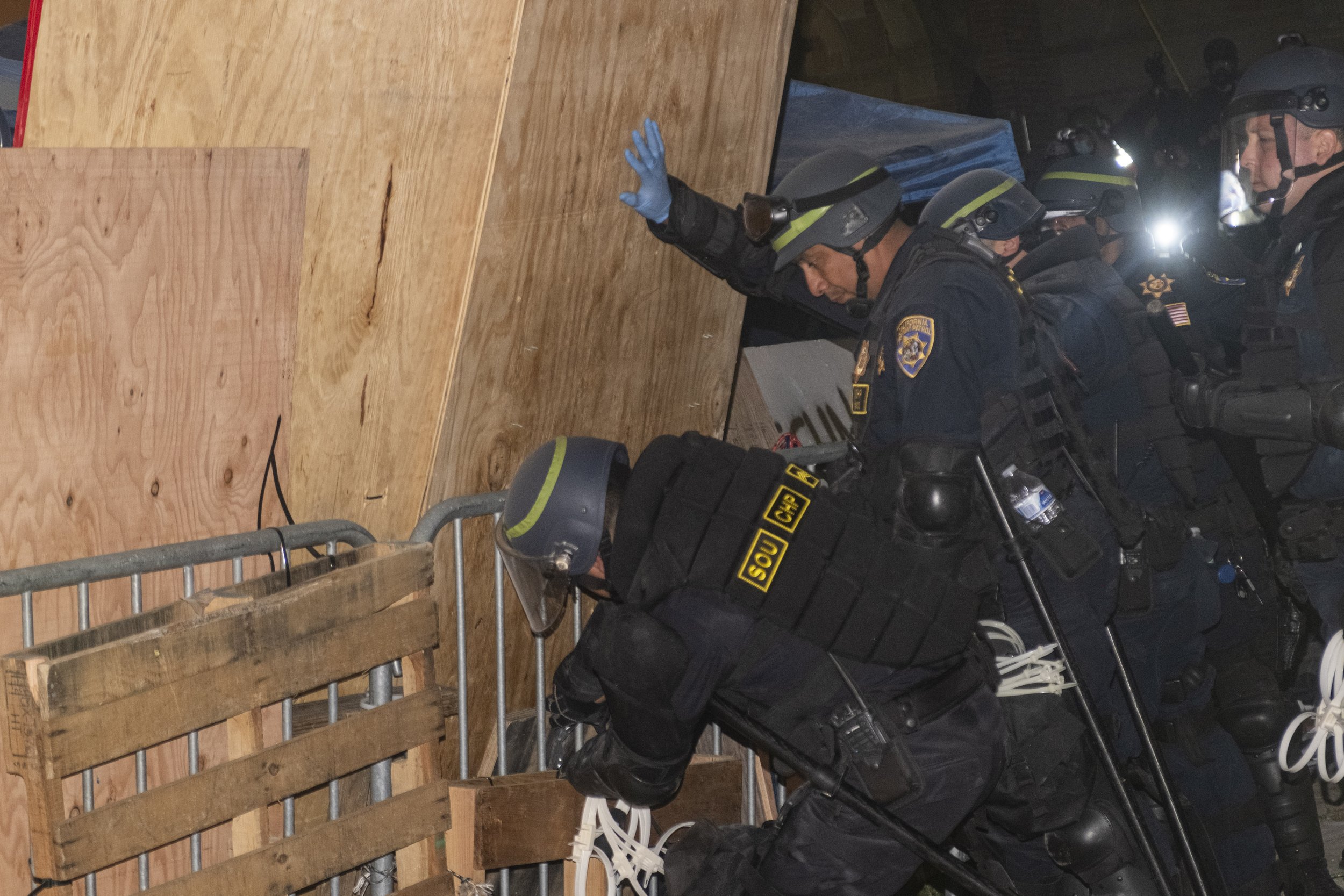
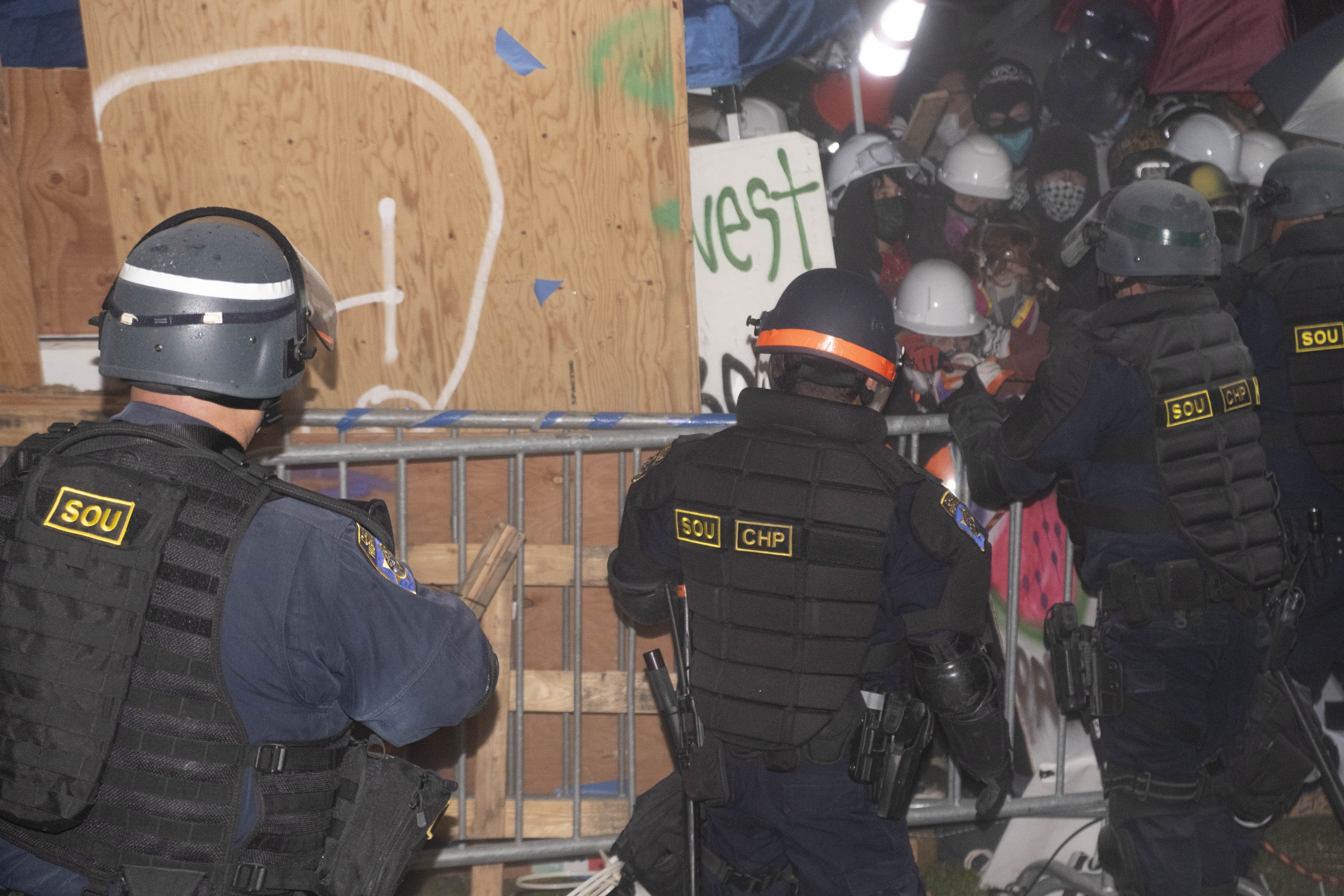
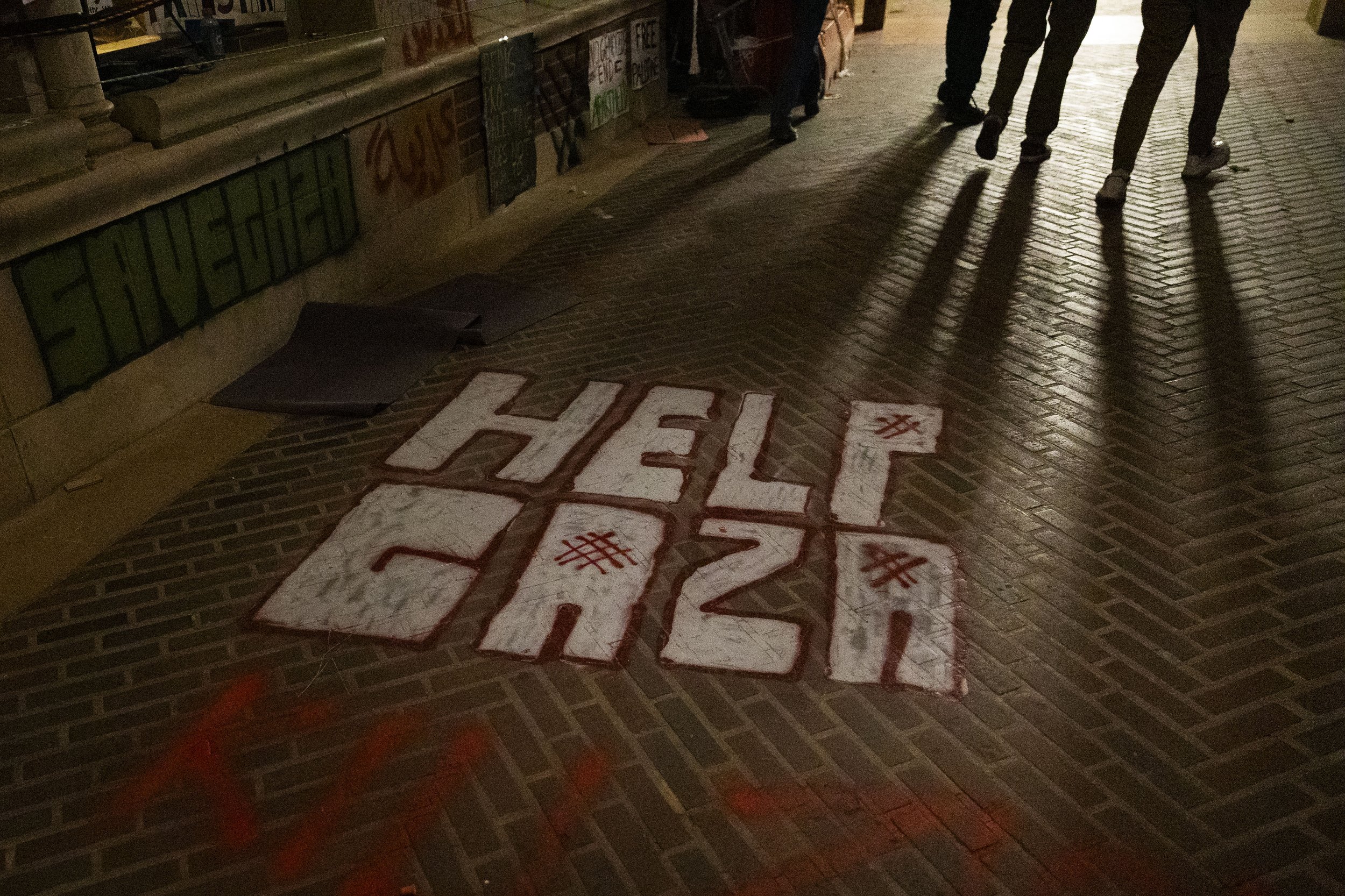
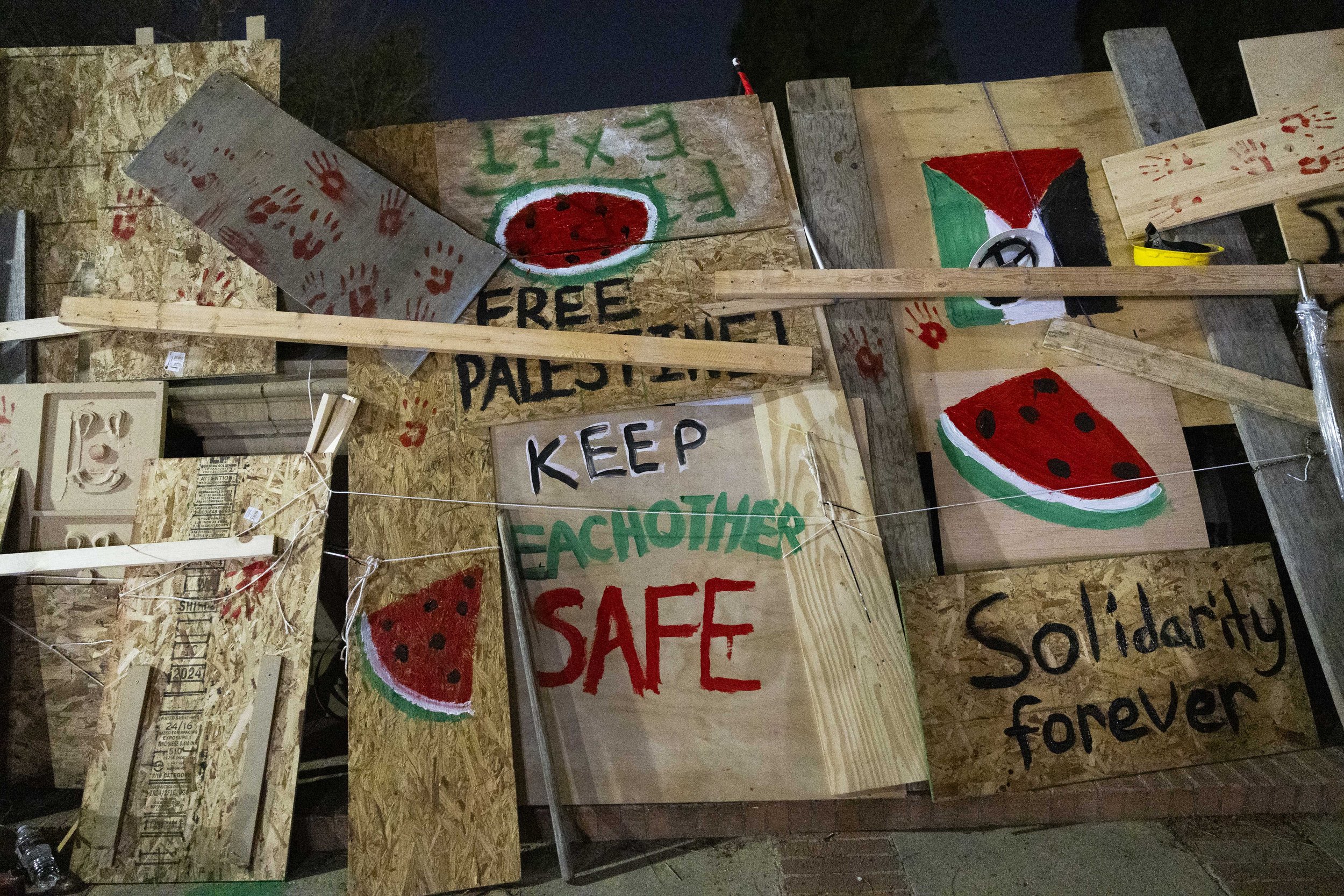
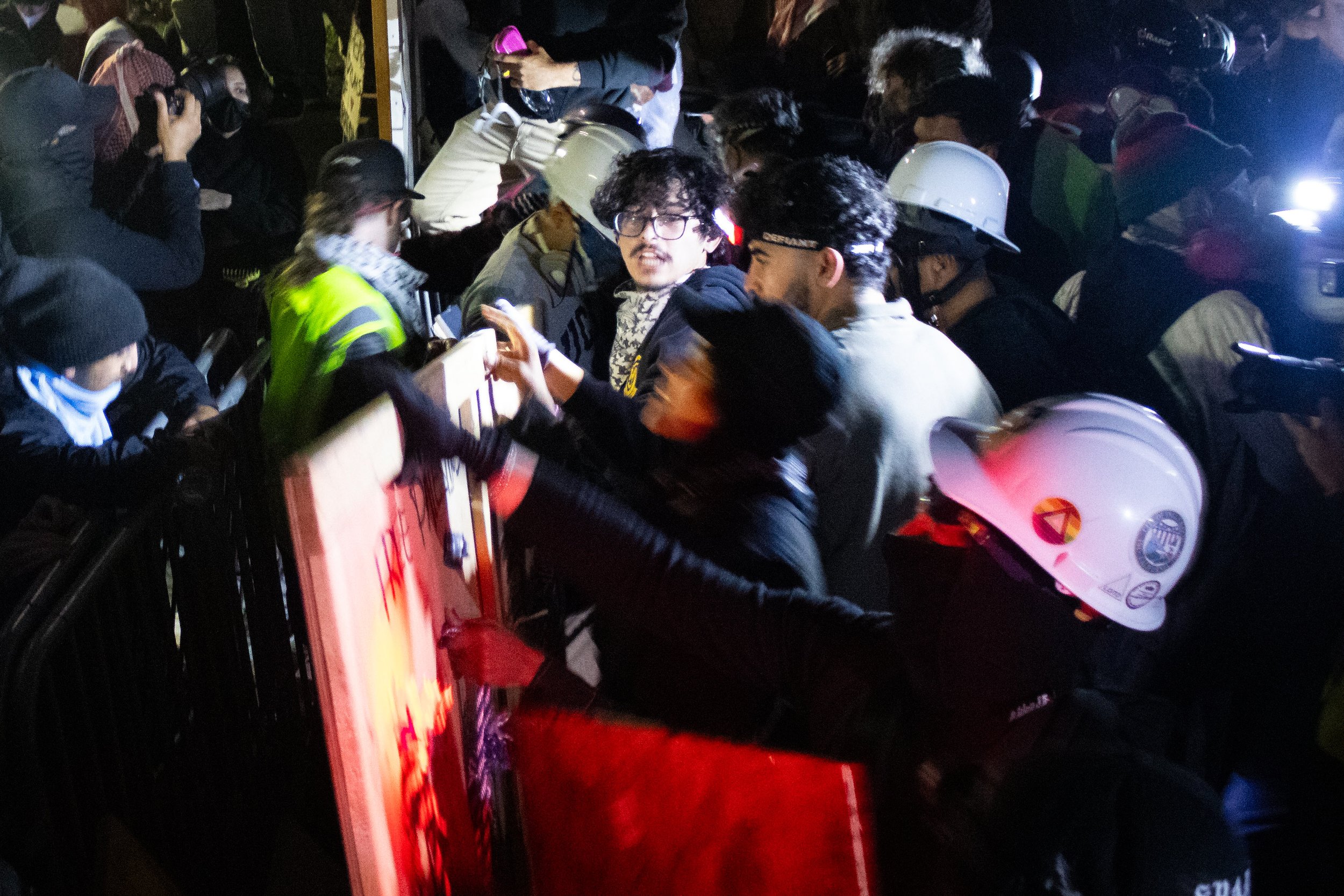
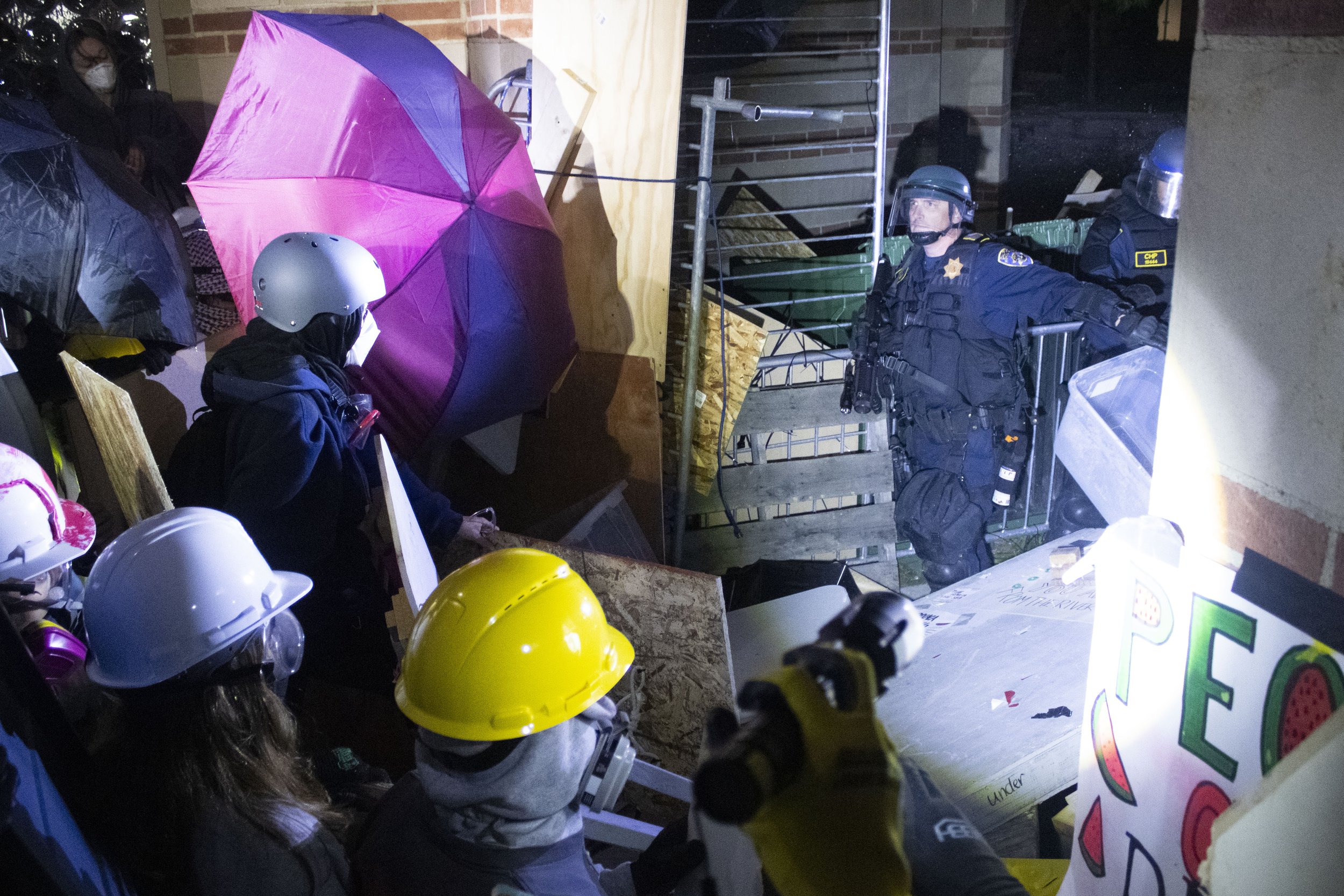
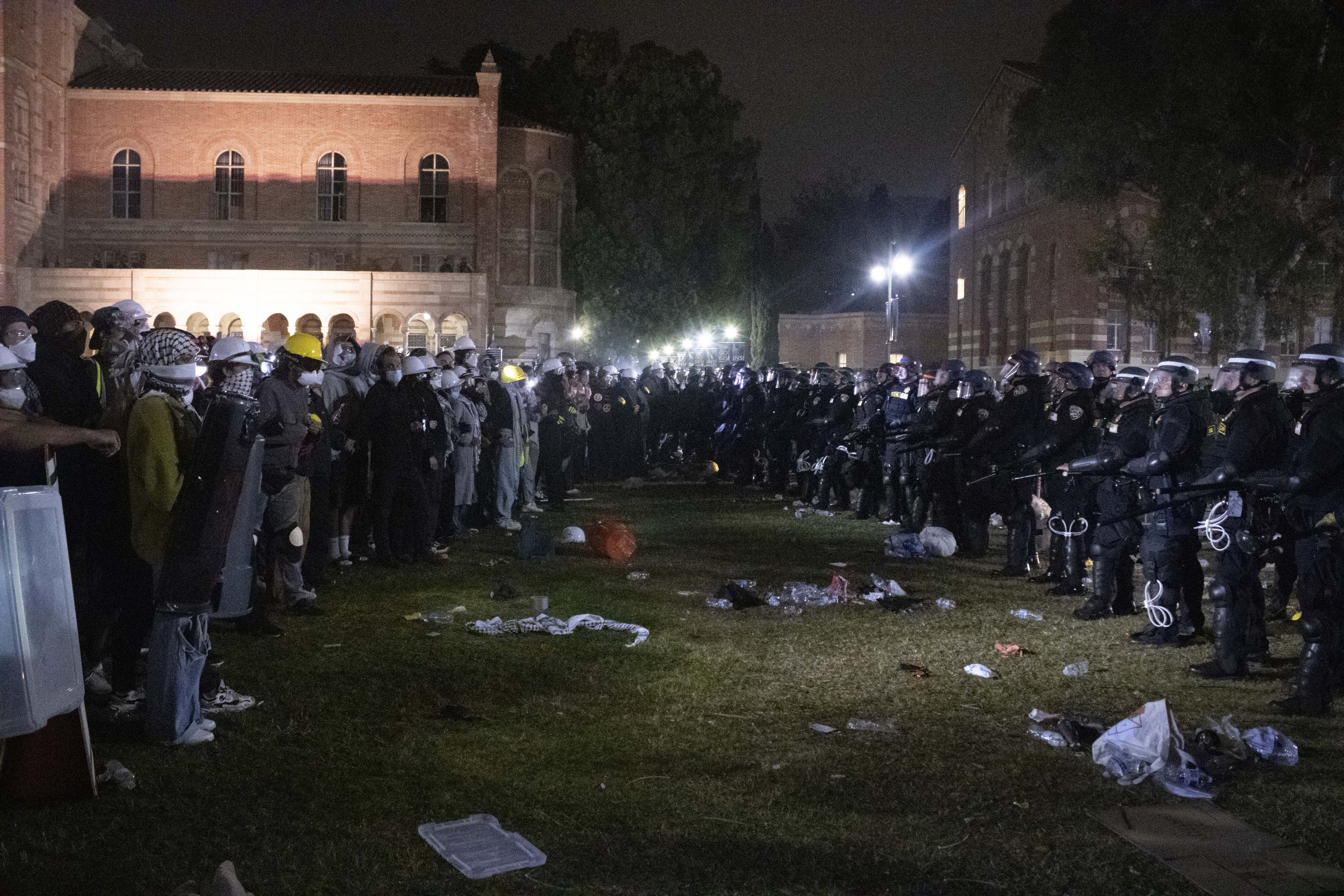
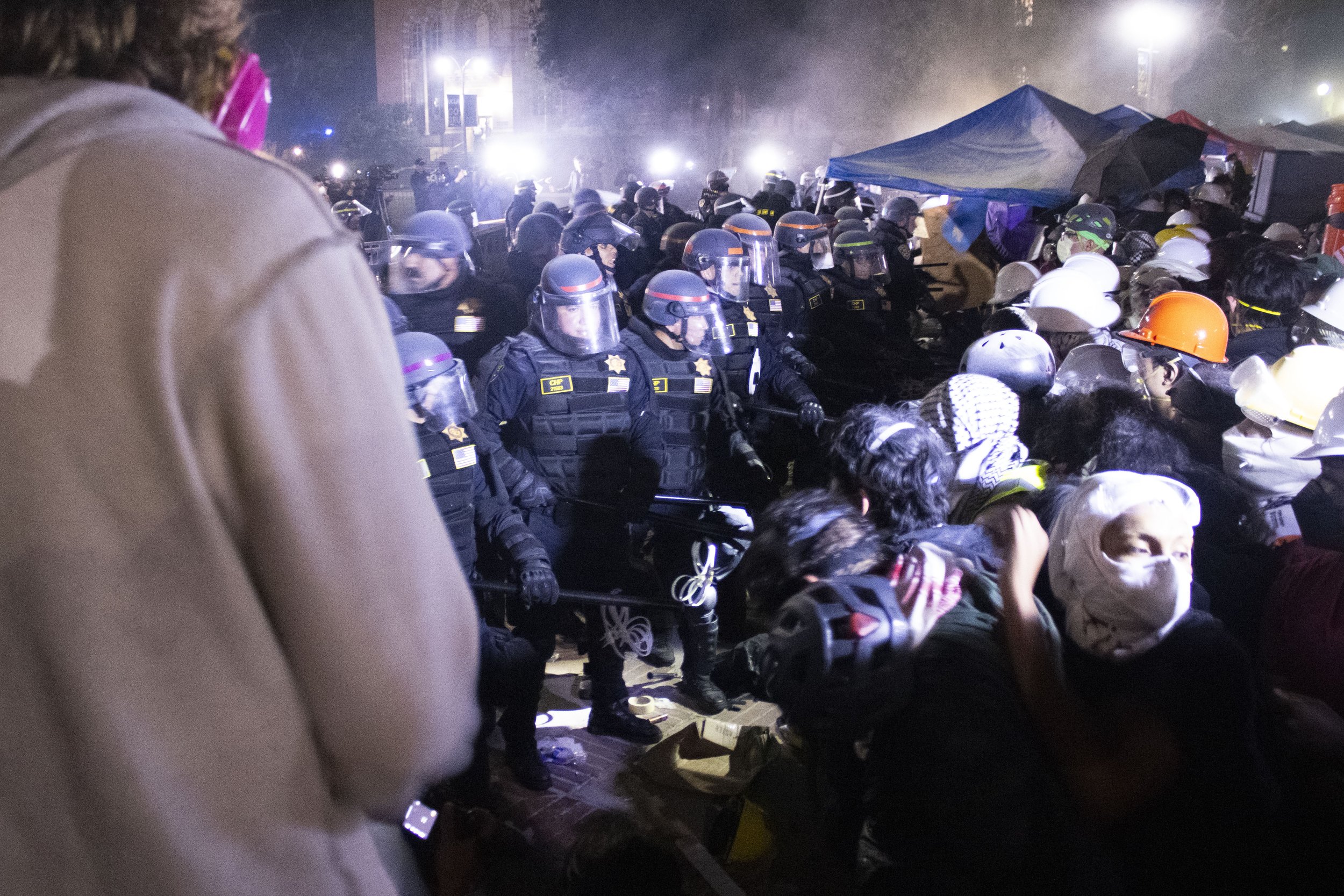
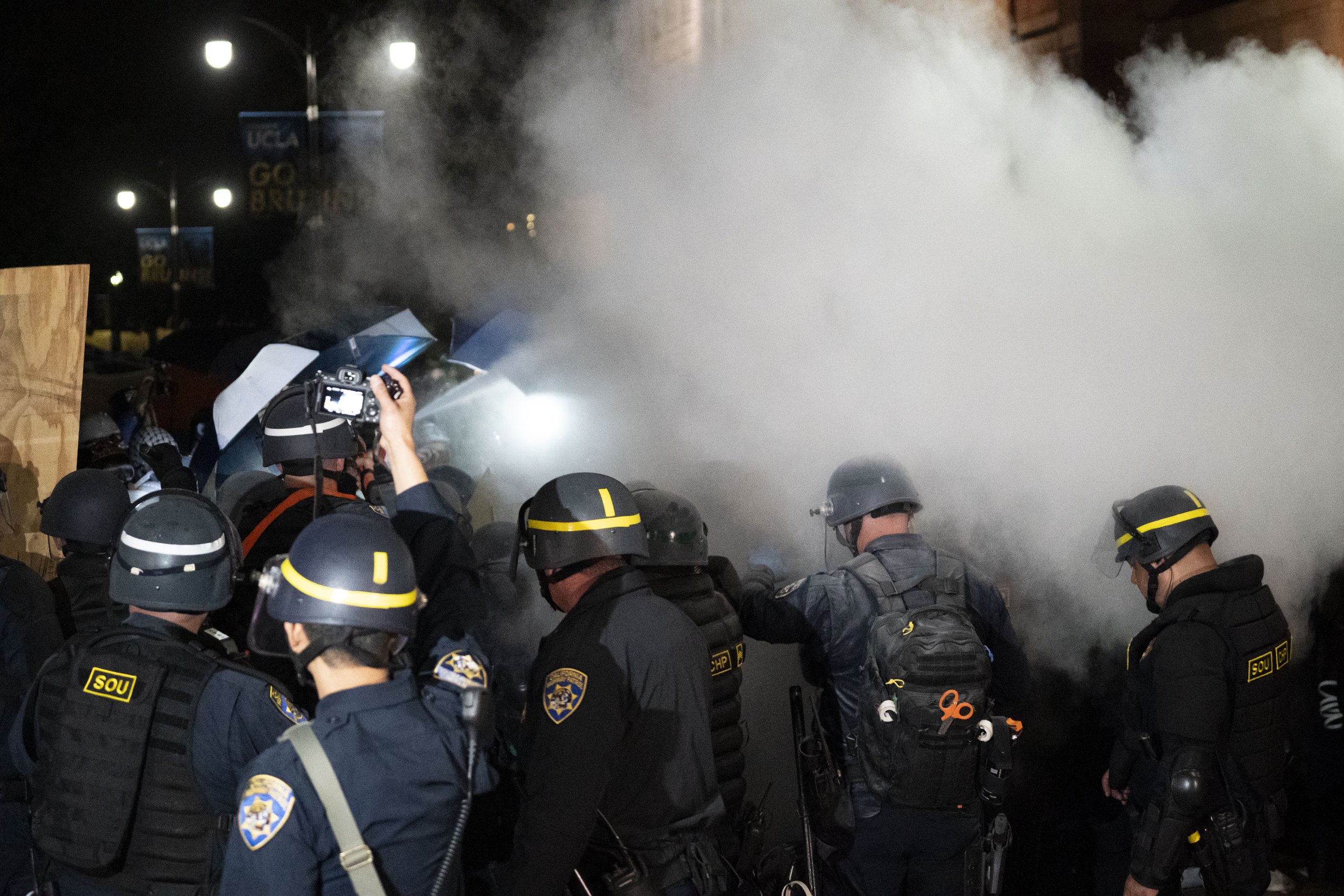
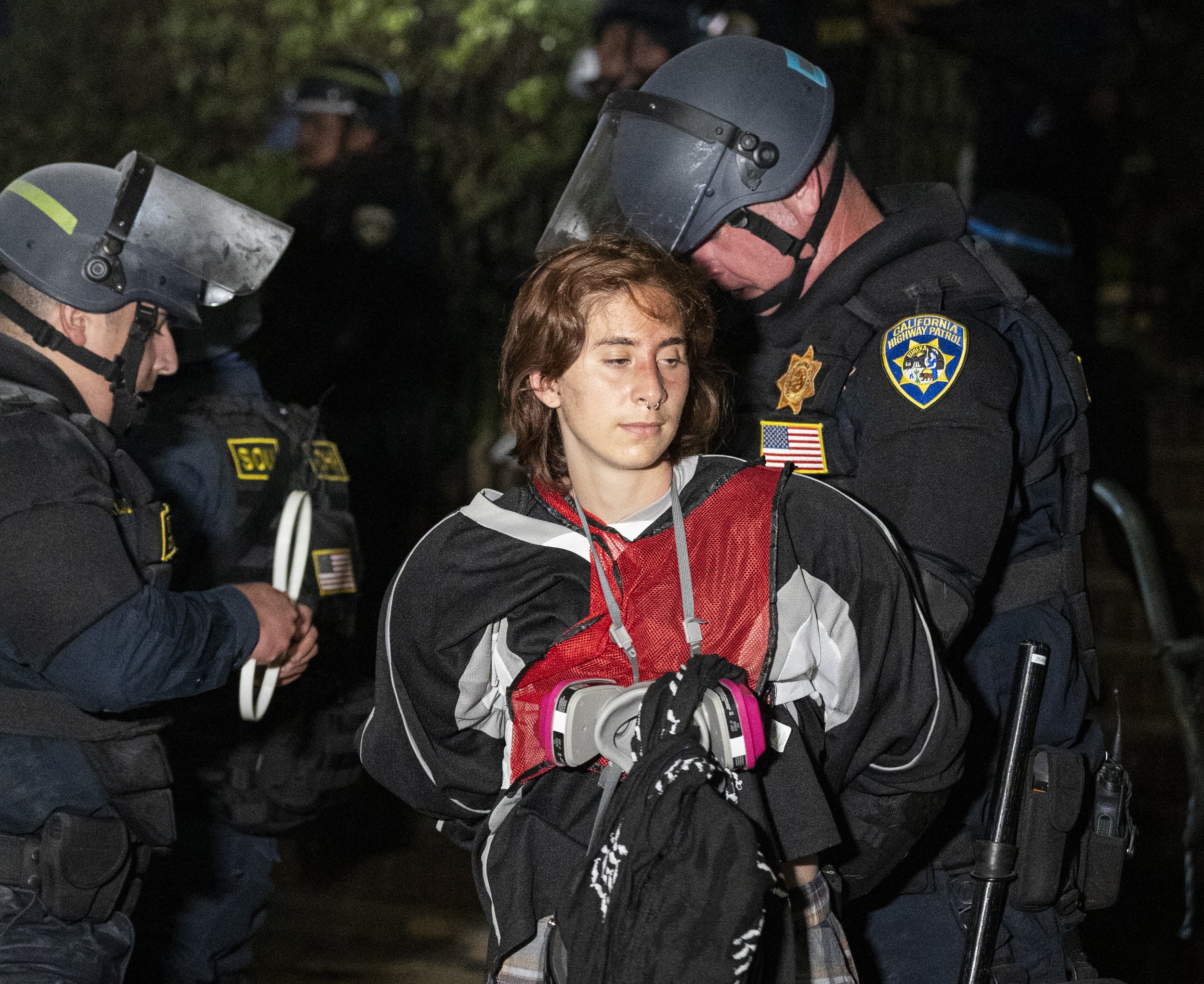
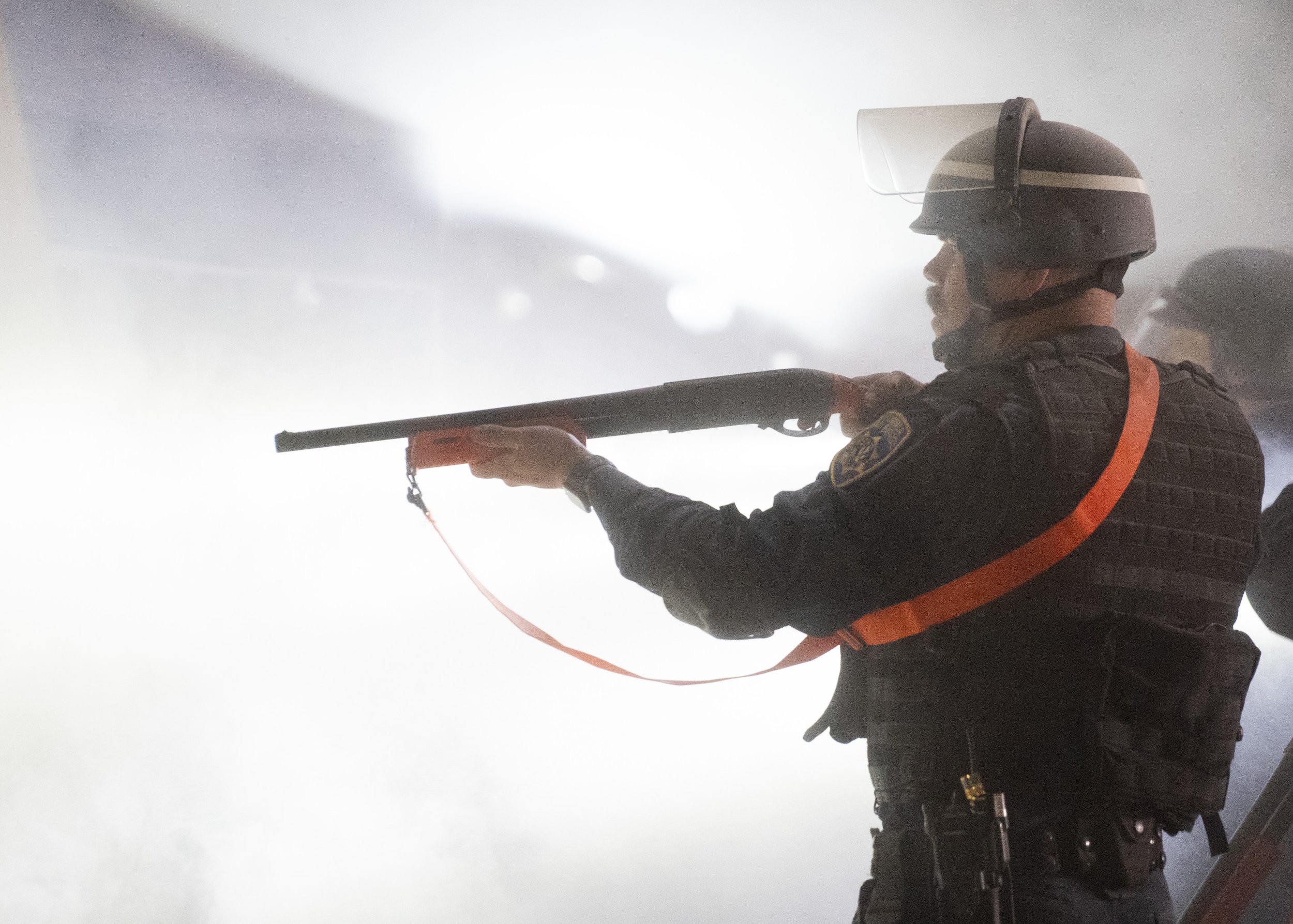
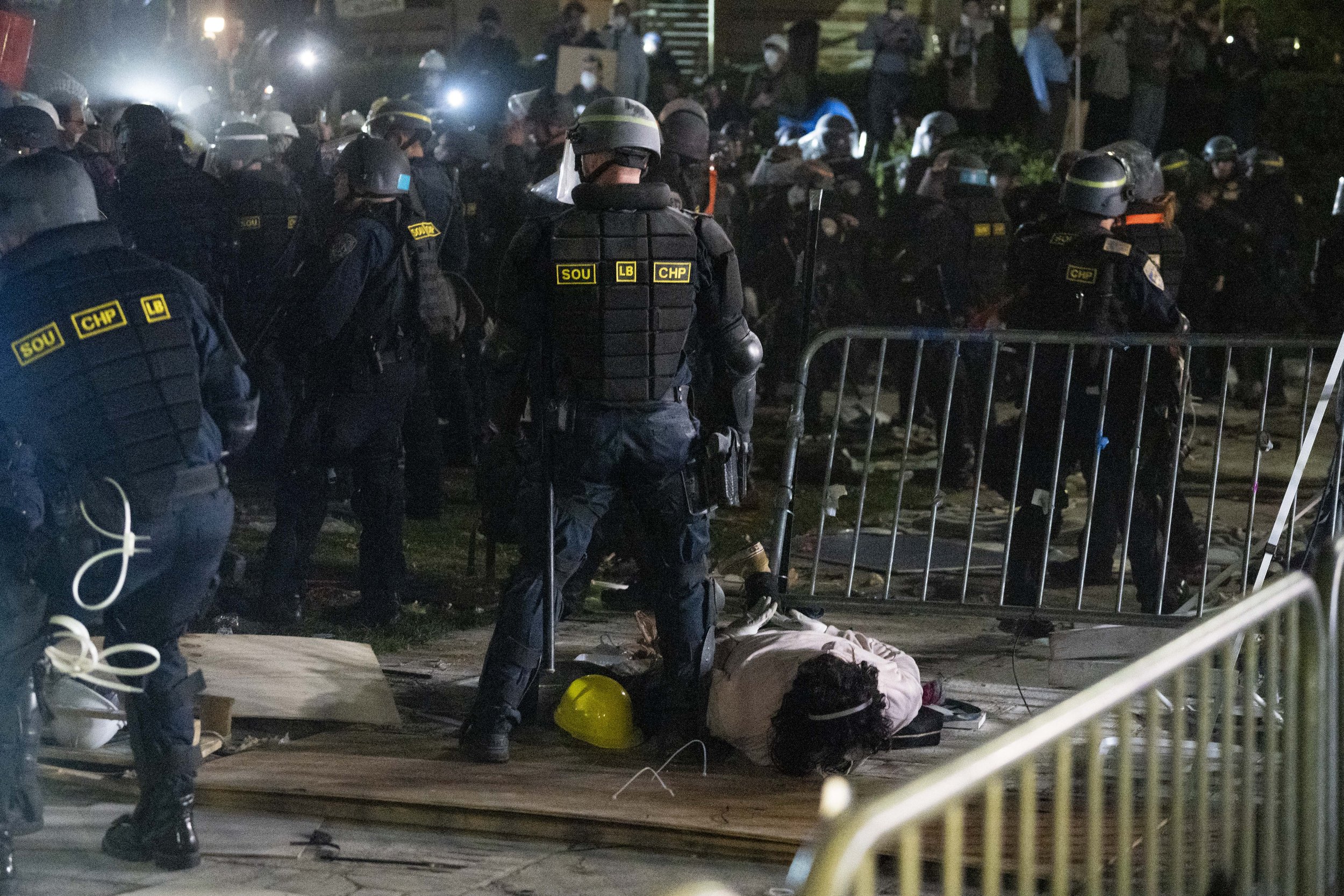
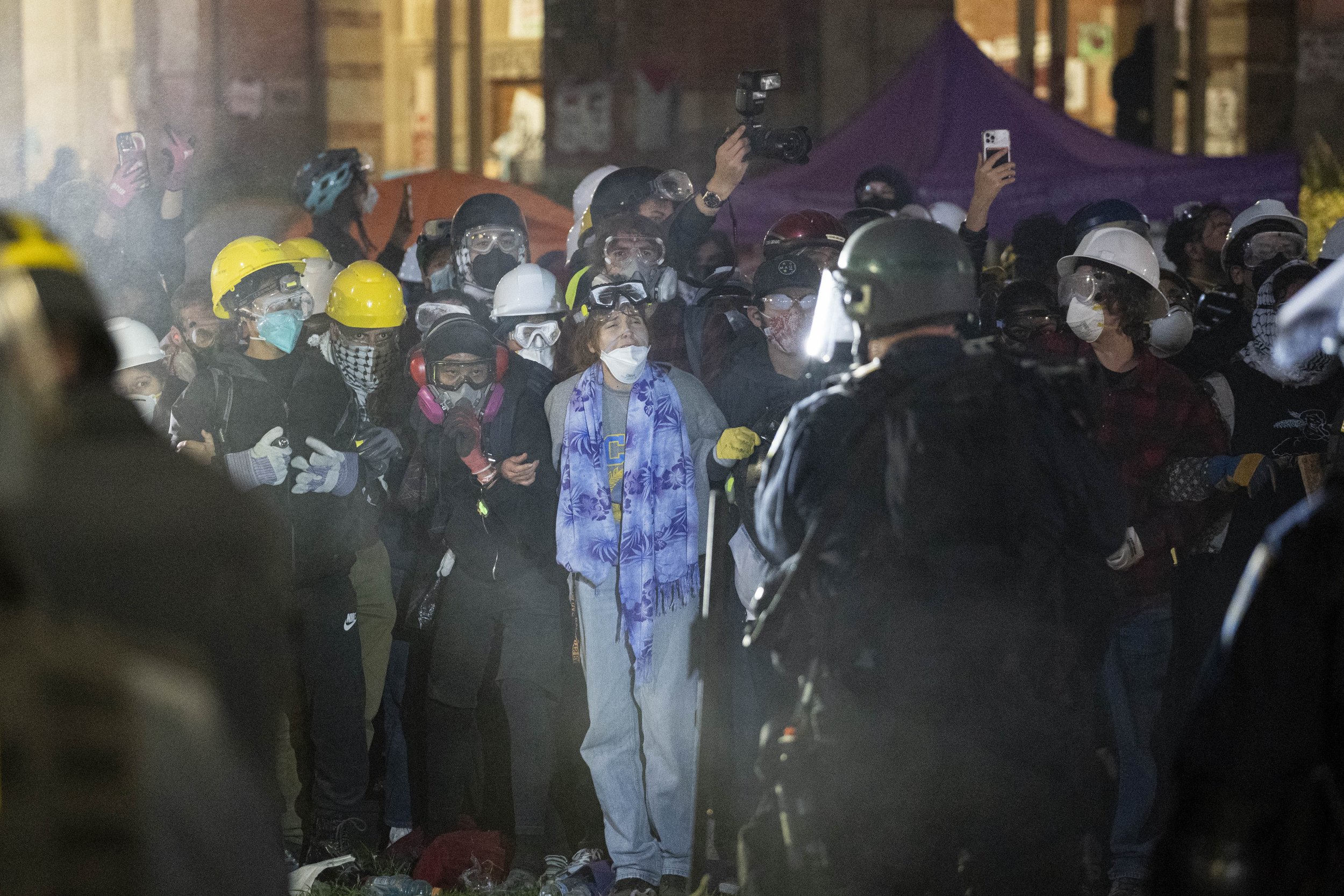
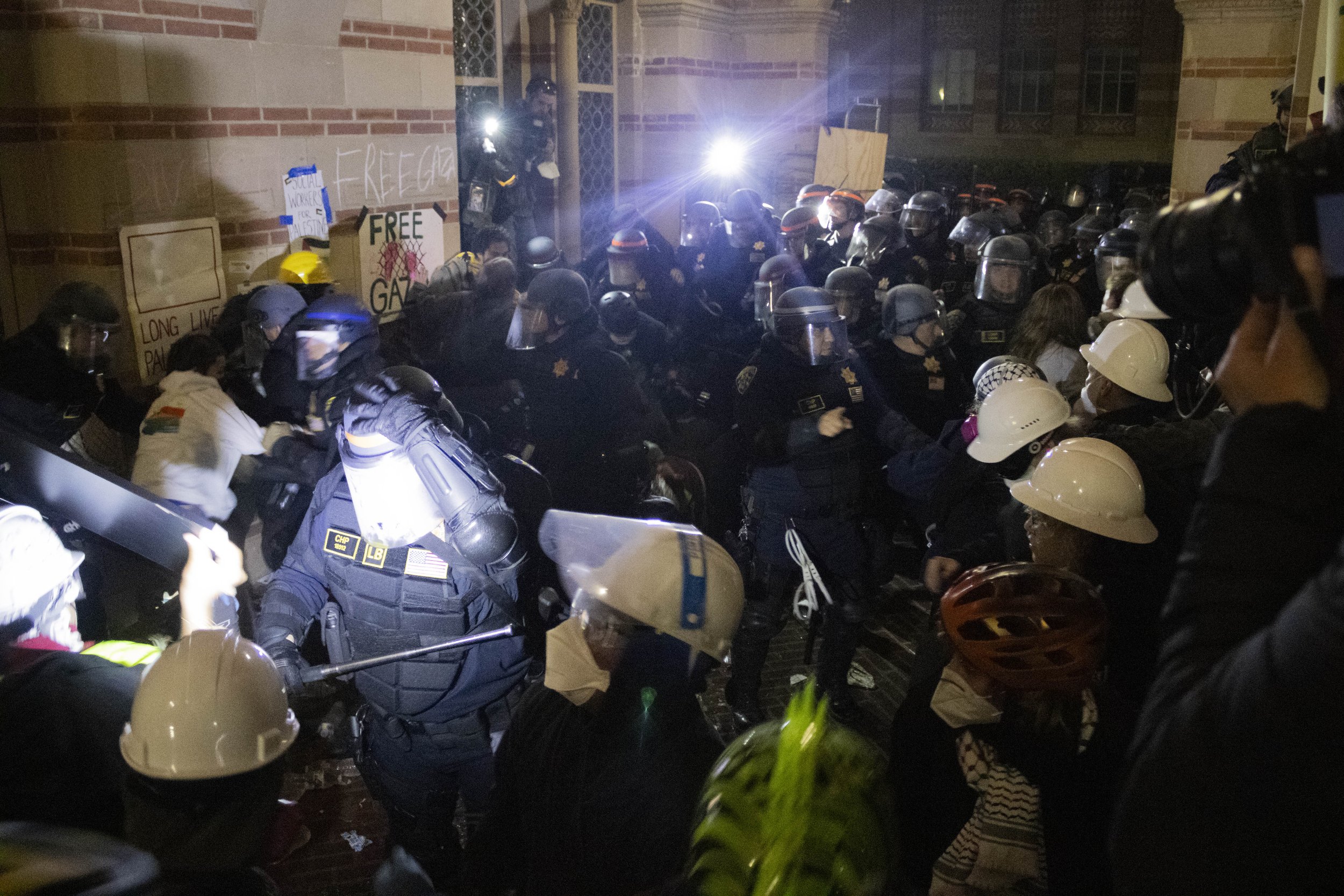
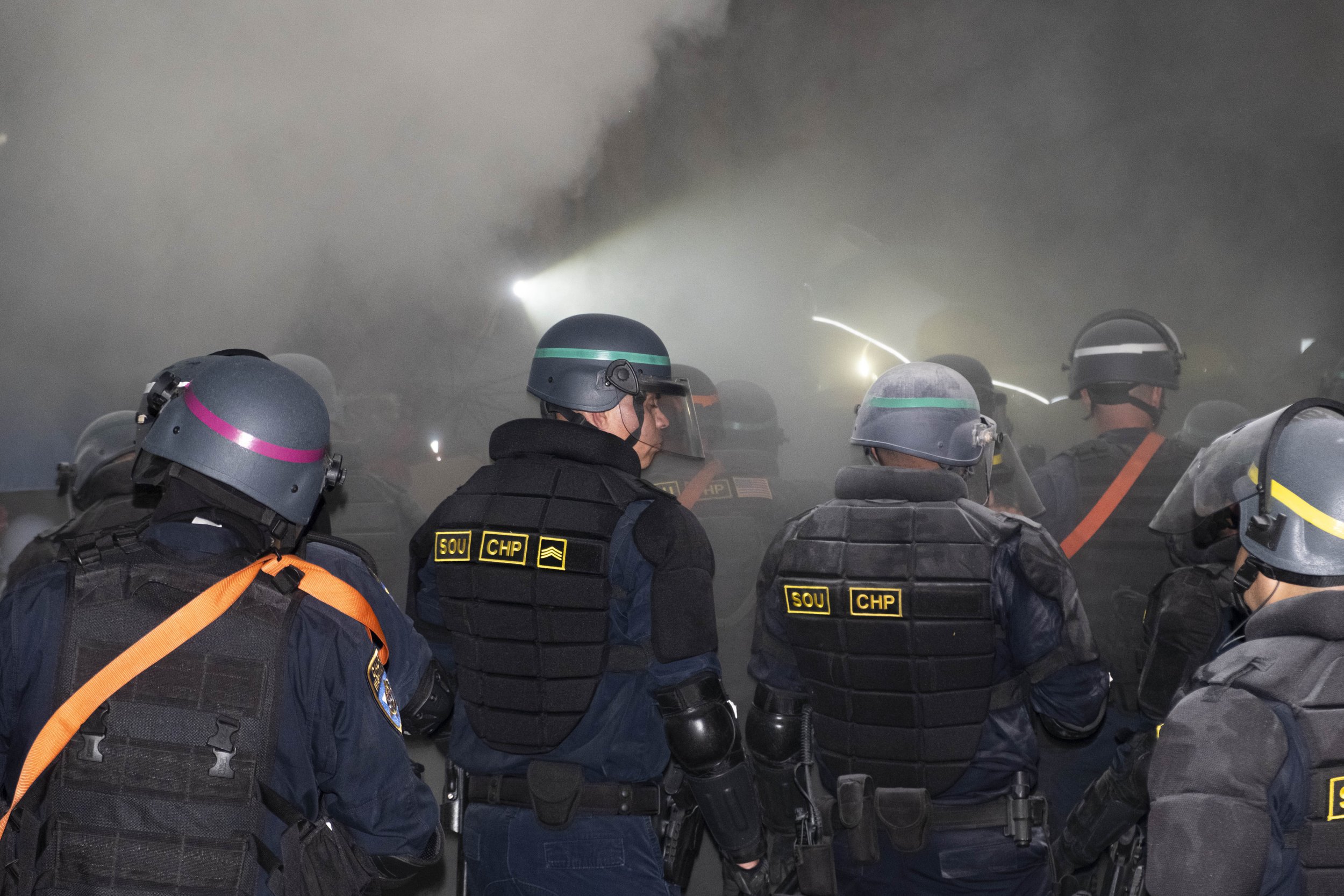
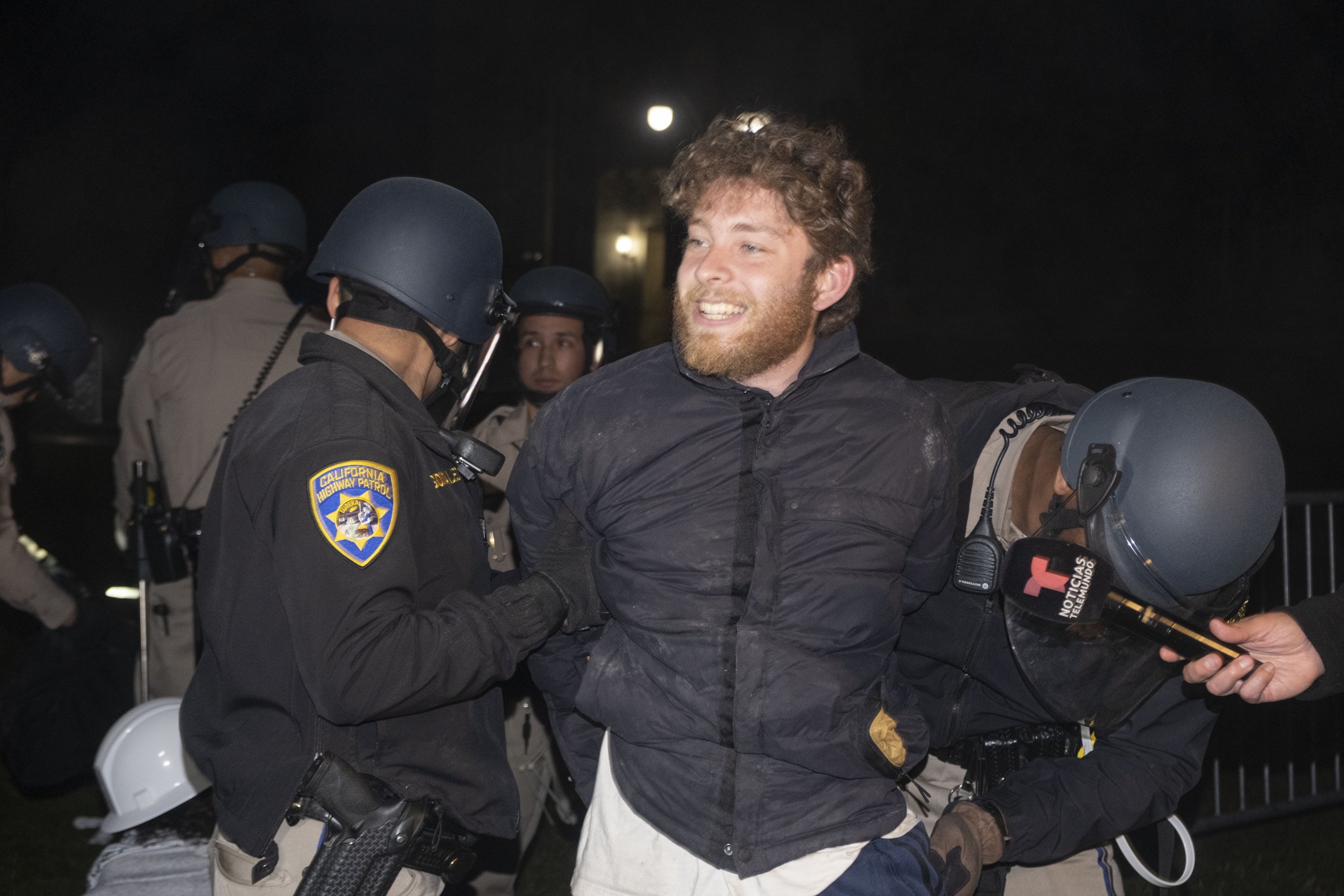
Wednesday
Wednesday evening, UCLA pro-Palestine protesters, including @sfs_ucla, incited a “call to action” requesting people to “come out in solidarity and DEMAND that UCLA protect its students better” on social media platforms. Later that evening, a dispersal order was made by officers for protesters to evacuate the campus.
Mona, who declined to give a last name, is a part of the Palestine solidarity encampment and is a UCLA student herself. She said, “We’ve been here for the past six days demanding the university divest from its complicity in the genocide that’s occuring in Palestine right now.”
Students and community members around UCLA responded to a request for supplies to be brought to the encampment for students inside. An instagram post made by UC Divest Coalition at UCLA requested “fresh clothes, inhalers, saline spray, wound wash, goggles, and face visors.”
Misol Botello, a UCLA student who was present at the Tuesday night attack, explained how he and his friends showed up in support once again after witnessing the students inside the encampment remain peaceful despite being hit with bear spray and fireworks.
“They just stood their ground, and they held their line, and I respect them for that,” said Botello. “I looked at what they needed, and just went to the hardware store. We, all of us, brought as much as we could.”
Outside the encampment Wednesday evening, the Janss Steps before Dickson Plaza were flooded with thousands of pro-Palestinian supporters chanting “Free Palestine.” Down below, over a dozen LAPD vehicles sat, with officers awaiting orders.
Inside, students positioned themselves at each entry point inside the encampment, peeking over wooden pallets and tents to keep an eye on the organizing officers. The protesters even had a drone, which they flew around to see each entry point from the outside.
Students inside allowed more supporters, and eventually media, to enter the encampment, but stated repeatedly as each body crossed the perimeter that anyone entering should be prepared for violence and prepared for arrest.
Later, at 7:44 p.m., part of the crowd was directed by marshals dressed in yellow vests to the back side of Dickson Plaza by the flagpole where they stated reinforcements were needed.
Inside the encampment, students used boards, tables, metal fences and bungee cords to build a barricade around the perimeter of their camp. The barricade was decorated with graffiti which read “FREE PALESTINE” and “Solidarity forever.”
Along the walls of Royce hall, similar graffiti had been painted on the building’s brick walls. Student protesters also used wood pallets, metal fences, and other miscellaneous objects to barricade each door facing into the plaza.
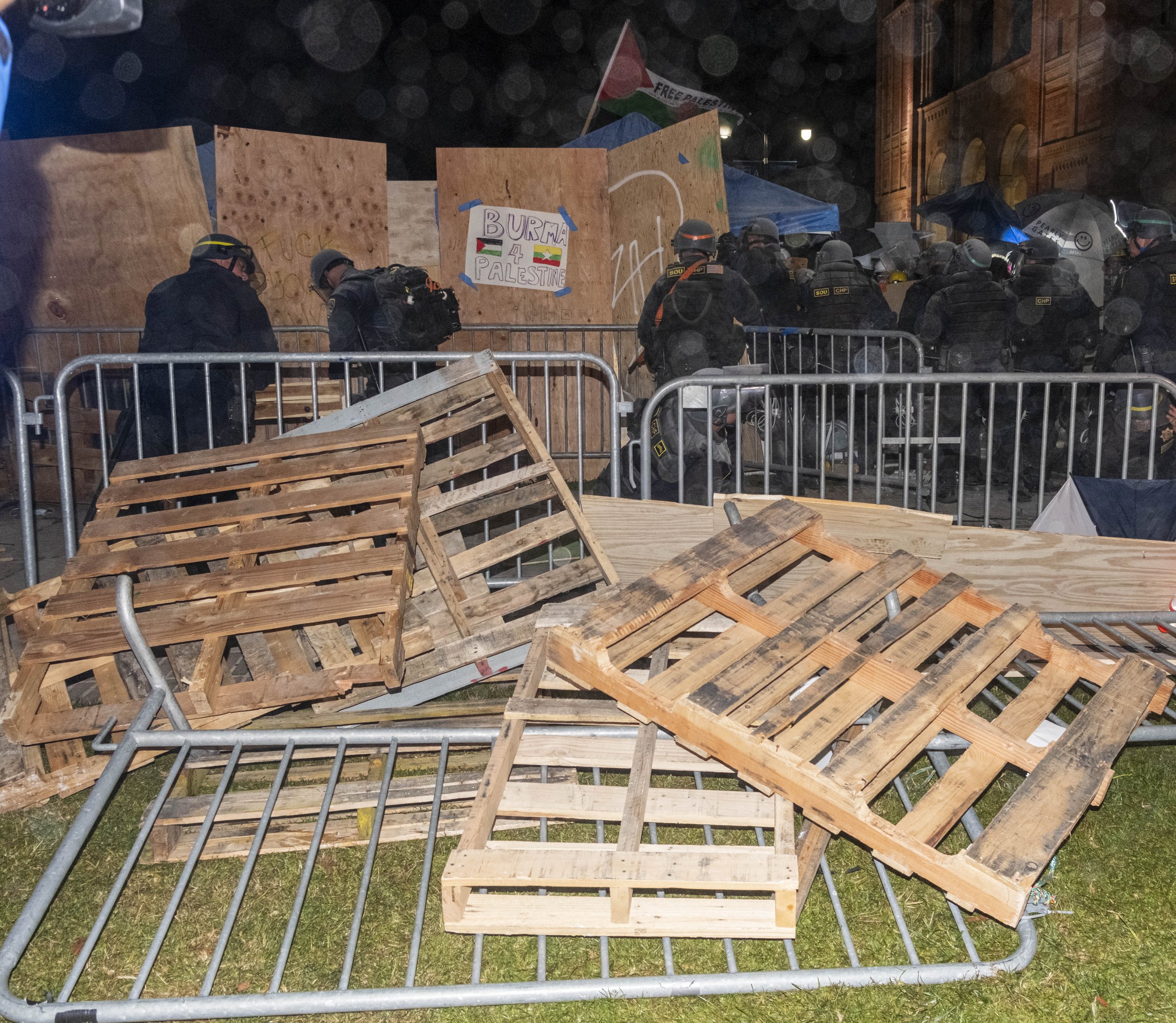
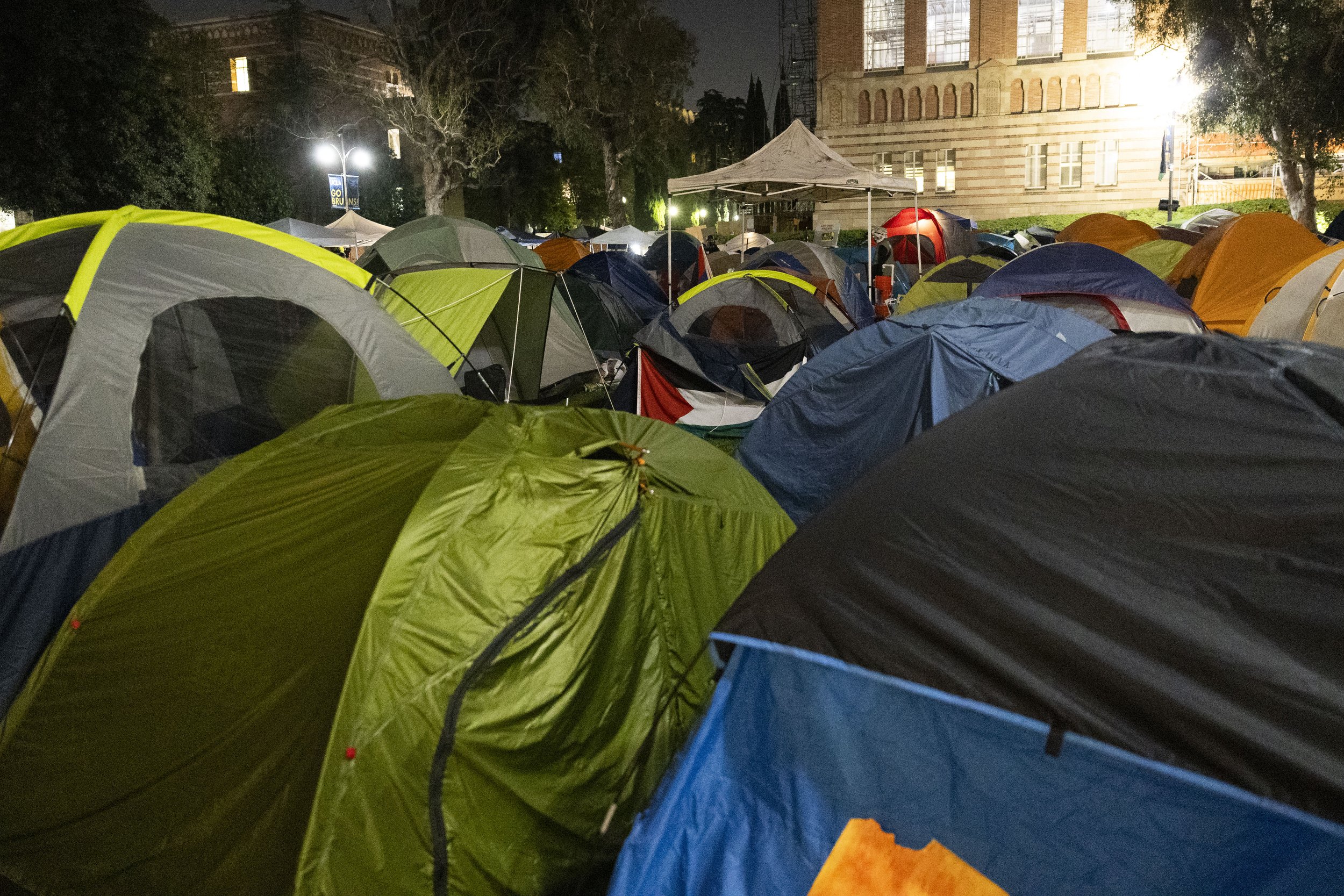
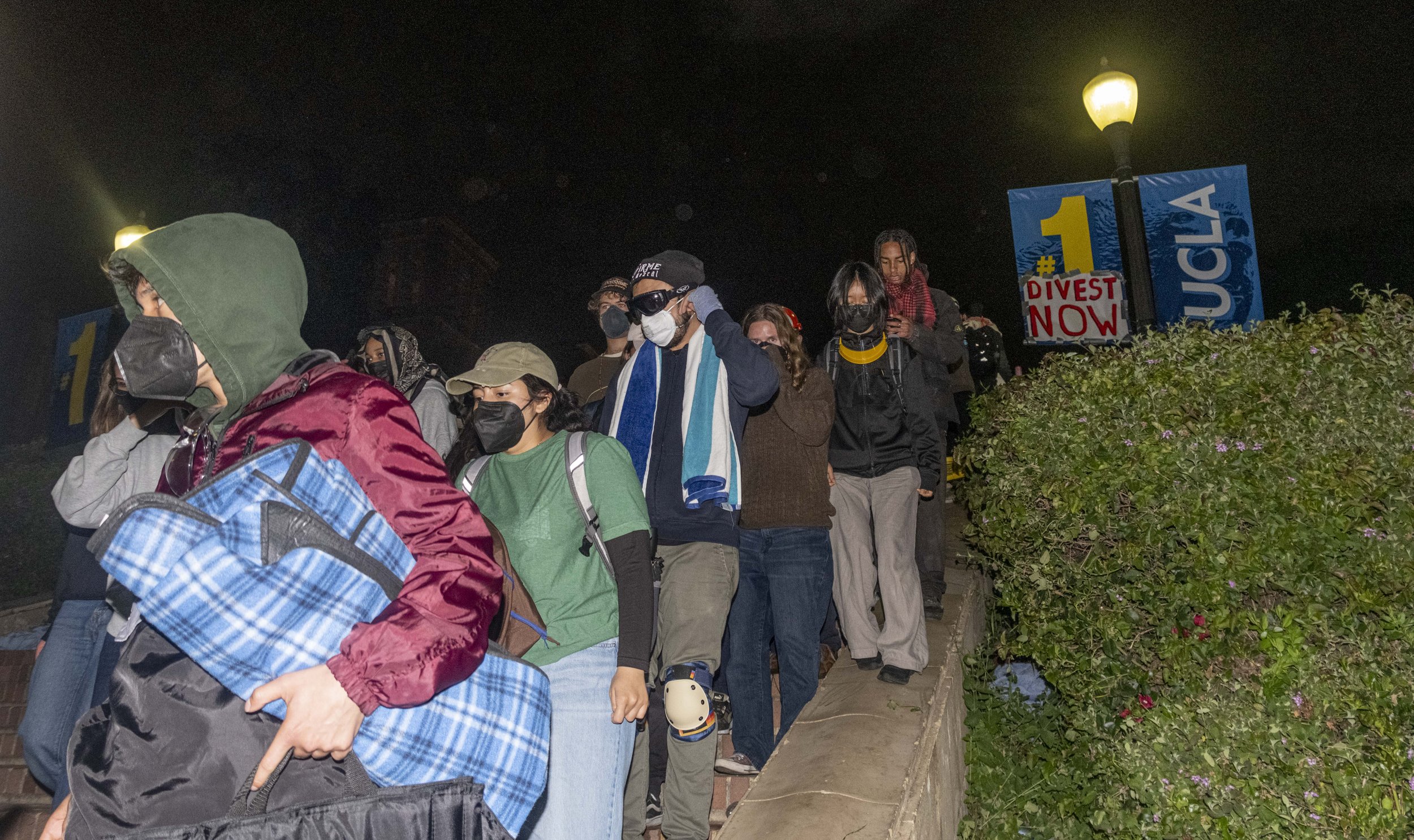
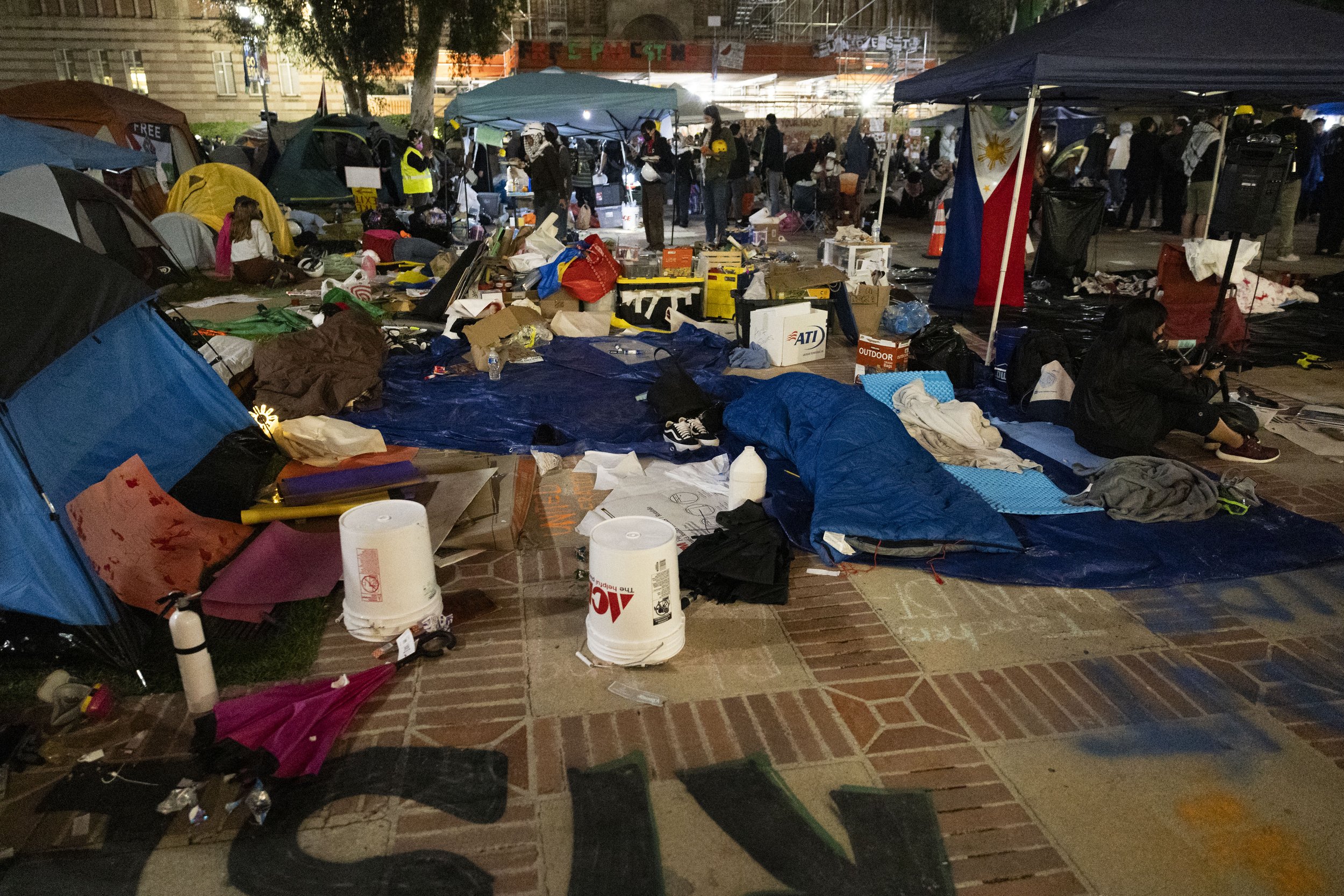
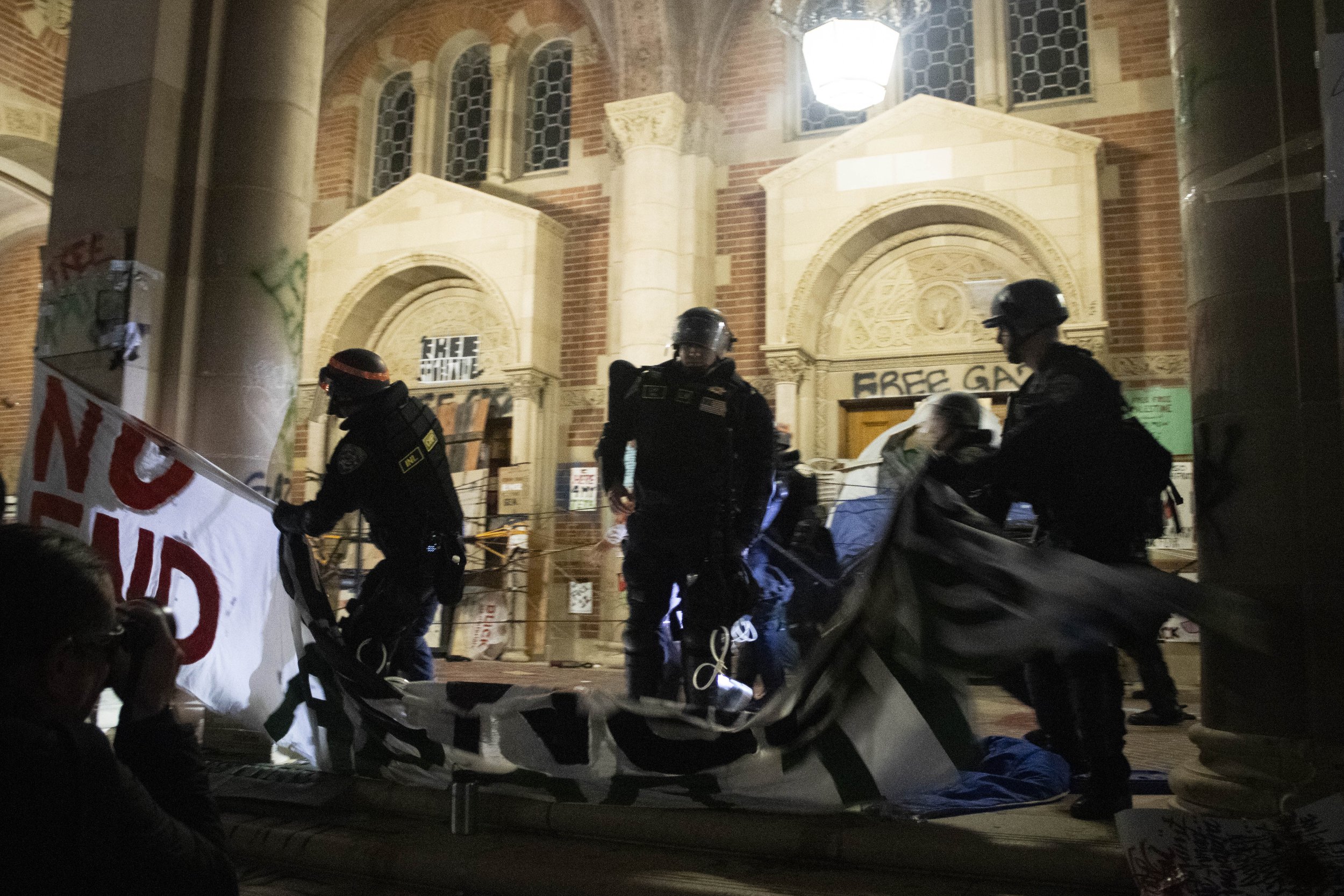
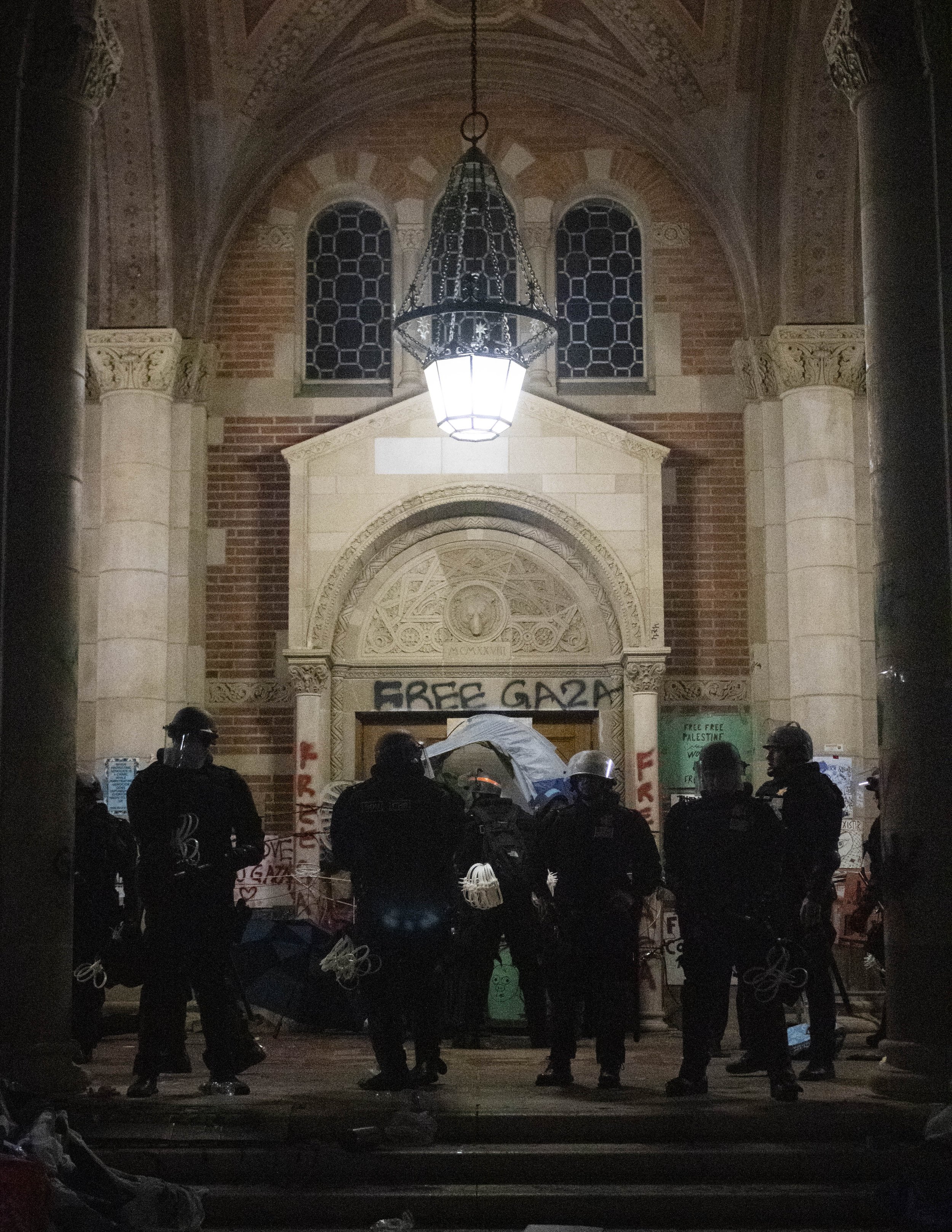
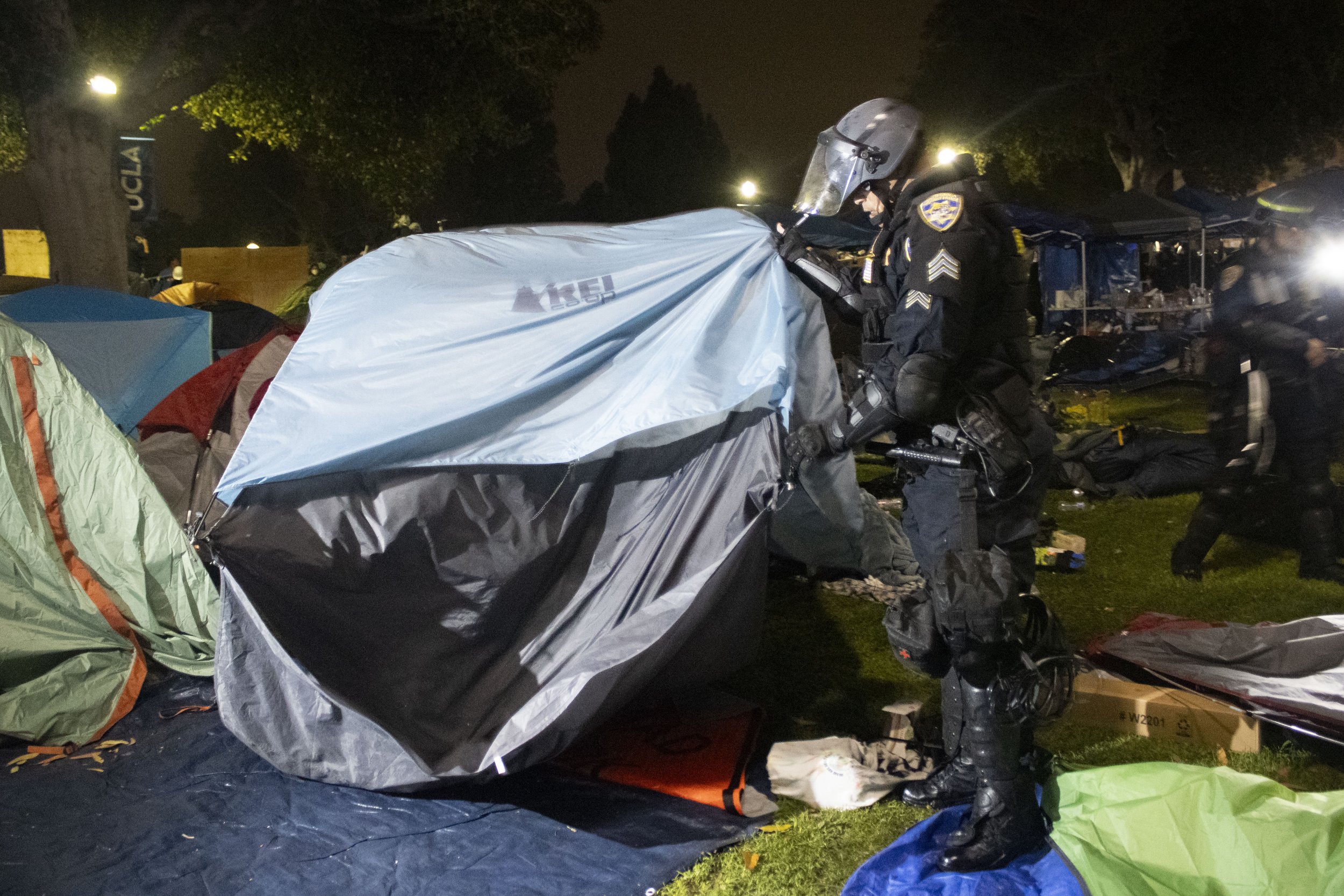
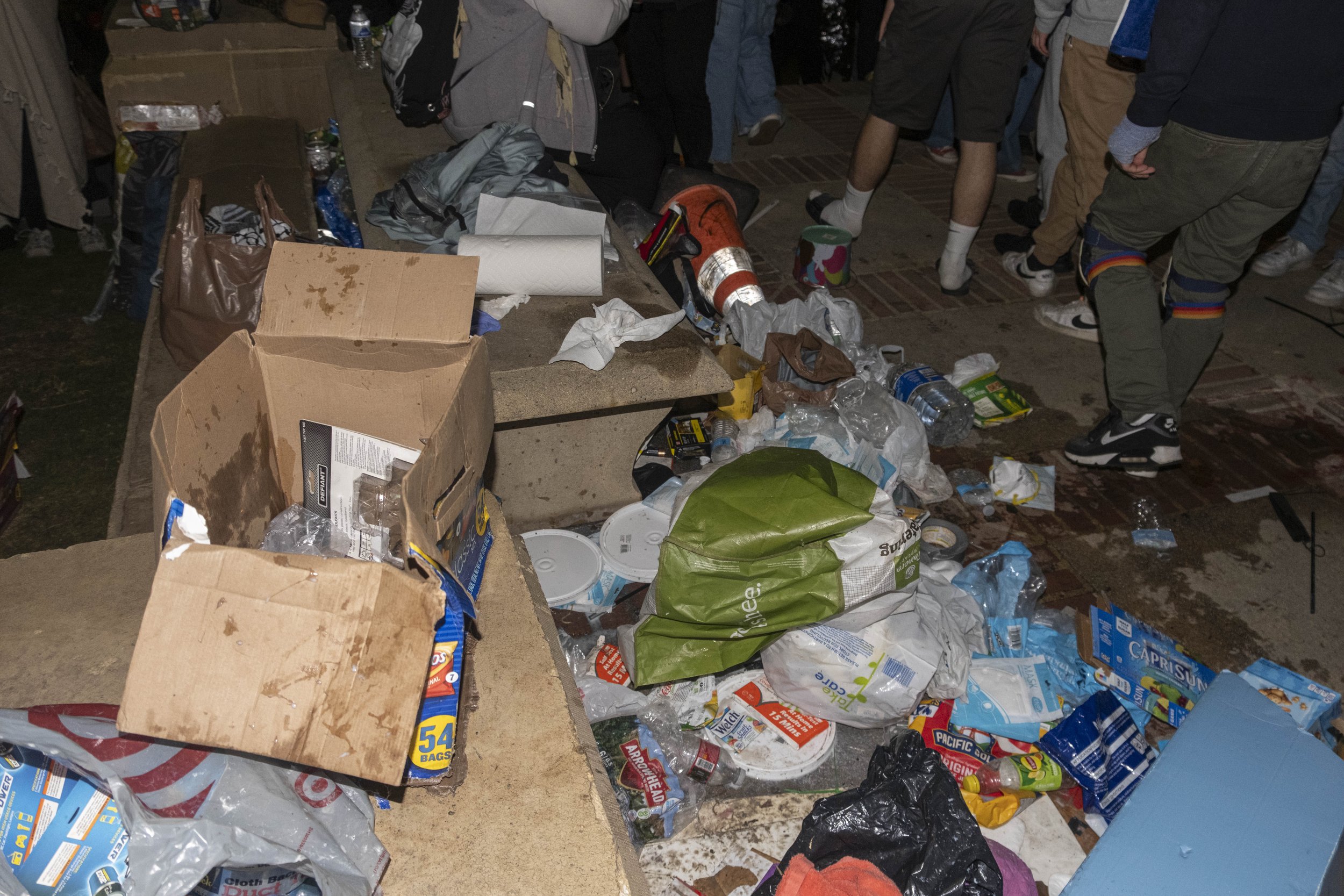
Thursday Morning
Throughout the night and into the morning, students outside the encampment linked arms against the police and a small group of counter protesters, remaining peaceful. Around 1:20 a.m. police dressed in riot gear broke through the west barricade unexpectedly after a loud boom sounded from a flash-bang grenade. The protestors quickly formed a human chain, slowly pushing forward, and shouting “peaceful protest,” as well as phrases such as “shame on you.”
The students pushed the officers back, regaining control of the perimeter in approximately 30 minutes and rebuilding their barricades.
Police then began shooting fireworks into the air above protestors’ heads. Amidst the chaos, leaders reminded others to stay calm and peaceful, while medical students marked with red crosses on their hard hats walked around passing out water, masks, and ear plugs.
Officers took up positions on the balconies of Royce Hall, to which the students responded by flashing lights in their eyes.
Around 3:15 a.m., the police once again successfully entered the encampment from the east side, entering through the narrow hall of Royce Hall, then breaking past the barricade facing the police line up in front of Dickson Court.
This time, there was no regaining of their borders for the pro-Palestinian protestors. They held their lines linking arms and chanting once again, though the students were noticeably tired. As they faced the police, some students even closed their eyes as they chanted, seemingly unable to keep them open.
It took approximately an hour and a half before police stormed the center of the camp, ripping down the “No Genocide” Banner at the center of Royce Hall immediately upon their arrival. Next, the officers tore down the Palestine flag, throwing it alongside the banner, and finally, they tore down the tents that students had been sleeping in for six days before pushing the students west.
Many students stood their ground, and others climbed fences and went through bushes to escape arrests. The officers eventually pushed the protesters to the far west side of the encampment where they once again built a barricade between the Shapiro Fountain and the Janss Steps.
As the final barricades were torn down by officers, small groups of students remained around campus protesting with officers breaking the groups up.
Mona said before the night’s events unfolded that UCLA students’ movement will continue on. “At the end of the day, no matter what happens to the camp, no matter how the administration has neglected us, we will continue to pressure the university, because student voices can make an impact,” she said.



